#21 Bumbling down the Danube
1973: Bumbling down the Blue Danube, and the Red Danube, with Cornelius Burke
by Howard Macdonald Stewart
First published in instalments, October-November 2016
*

The Ormsby Review is pleased to present a memoir by Howard Stewart, born in Powell River in 1952 and a long-term resident of Denman Island.
When Stewart was twenty, in 1973, near the start of his career as a world traveller, he spent a summer cycling across Europe on his Peugeot 10-speed with Cornelius (“Corny”) Burke (1916-1999), a genuine World War II war hero and a little-known B.C. author. Also on the trip was Corny’s sixteen year-old son, Patrick Burke.
As Stewart describes it, Corny Burke first entered his life as an anonymous voice on the phone. Over the coming months, Corny revealed more of himself. It turned out Corny Burke was from a distinguished B.C. family — a much-loved Vancouver establishment icon (and travel agent) — who was doing a radio show and running his own travel agency in Vancouver called Burke’s Worldwide Travel.

Few people in the Seventies remembered that Burke was a highly decorated soldier whose various exploits bordered on the extraordinary. Travelling with Corny through Europe, Stewart would learn a great deal from this “funny old man” who had much to teach about how to be in the world, and how to treat people.
Corny Burke’s travels with Howard Stewart resulted in an unusual travel memoir, The Danube Caper of Cornelius Burke (Vancouver: Nunaga Publishing, 1974). Burke also wrote a British travel account, Land’s End to John O’Groats: A Chronicle of a Marvellous Journey by Three Intrepid Cyclists.
It has now taken Corny’s youthful sidekick forty-two years to provide his side of the Danube story. Here we get the young cyclist’s recollections of his own stumbling progress, the boundaries he transgressed, the borders seen and unseen, the countless things lost or mangled in translation as Corny’s eccentric caravan rolled across the grand hotels, tourist haunts, and back roads of Cold War central Europe.
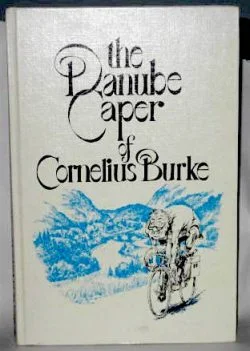
The two Burkes and Stewart followed the Danube from Vienna and into Hungary, and then – sharing the road with Czech-built Skodas and Russian Volgas and their aggressive drivers — followed the great river to Györ and Esztergom, and then south to Budapest and down the Hungarian Plain to Dunaujvarös and Mohacs.
This is a story of Cold War Hungary, a place where piles of rubble “still greeted you as you entered Budapest from the northwest in those days,” devastation left over from the Hungarian Revolution of 1956.
Their tour took them through Belgrade, the Wallachian Plains, Pitesti, Bucharest, Tulcea, Braila, and the Danube Delta on the Black Sea. Stewart recounts their real (or imagined) battles with instant coffee, slivovitz, more slivovitz, food poisoning, Eastern bloc bureaucracies, hotel night managers, Serbs, Croats, Gypsies, Albanians, Bosnians, doctrinaire Marxist students (or security agents?), lost passports, pickpockets, unwanted propositions, and YHS (yogic headstand syndrome) — Ed.
*
Who is Cornelius Burke?
“Hello. Burke’s World Wide Travel. How can I help you?” Despite the offer of help, this cold voice from a distant office felt hollow, emotionless, all business.
“Uh. Hello. I’m calling from a phone booth. North Carolina. I, uh, I don’t have much time, you know. So, I mean. The phone took all my change eh. I’d like to speak with Cornelius Burke please. Maybe he can call me back? He asked me to call him at this number.”
“Mr. Burke is very busy. I’ll pass on your message.” Even brisker now and less polite. Is she Annoyed? It was three hours earlier on the west coast so maybe she needed coffee.
“Thank you. It’s pretty chilly here and wet too, you know. So, I, uh. I’ll just wait here in this phone booth for his call. Here’s the number…”
“Thank you. I’ll pass on your message. I can’t promise anything. Goodbye.” Click. Bzzz.
The weather was dry in Raleigh and not really cold though it had rained down on the Carolina coast not long before. My latest trove of General Delivery letters had included one from my father where he said this Vancouver businessman wondered if I might be interested in riding across Europe with him. Whoa.
“Thanks so much for calling. I hope I haven’t kept you waiting. Delighted to hear from you.” He’d called right back, a voice as deep and warm as a friendly hand shake. Later I’d learn Cornelius Burke had a radio show in Vancouver where he spoke of his eclectic travels. This charming, magnetic voice must have been part of the attraction for listeners of a certain age. And that almost English accent you heard sometimes on southern Vancouver Island.
“I’d love to hear about your ride in the States. But maybe we should keep it short now. You can come for dinner when you get back. Tell me all about it.” I felt like an old friend.
“Well, the riding’s been great. Getting easier all the time really, except for saddle sores sometimes. And the weather’s been perfect most of the time, except for some rain here in the Carolinas. And the days, you know, they’re getting longer so I can ride longer. I’m hoping to make Montreal in maybe ten days, two weeks.” A twinge of guilt about my lie concerning the weather in Raleigh flitted by, but I barged on.
“Uh, my dad said you’re, maybe going for a ride in Europe and maybe want someone to go with you?” No sense beating around the bush. This call must have been costing him a fortune. I hadn’t spoken with anyone in Vancouver since Christmas.
“I’ll tell you about that in a minute. How are things in Raleigh? I’ve never been there.”
“Well, I just got here yesterday. Left the coast, you know, because I have a friend at the university here, guy I worked with in Kitimat a couple years ago. Roger’s letting me sleep and eat in his dorm. It’s great to stop for a day or two sometimes, you know. Sleep in a bed. Eat decent food. Meet women. People are playing banjos all over the place.”
I’d also pretended I was Roger at a university clinic, to get treatment for a messy eye infection. But this was not the image I aimed to project.
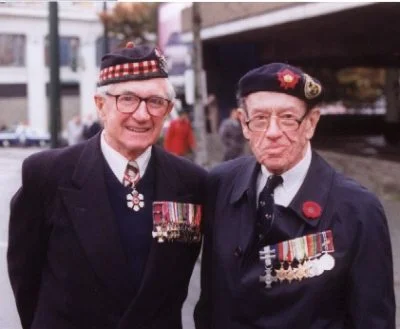
“Well your dad’s right. I’m planning to go for a ride too, with one of my sons. We thought you might join our little expedition, seeing as how you’ve done some long-distance riding. I’m told you might speak some languages too. We’re planning to follow the Danube River, from its source in the Black Forest to its mouth on the Black Sea, in Romania.”
“Wow… Wow, that sounds like a great ride, Mr. Burke. Sounds amazing. But I, uh, I don’t think I could afford it. I’ll be broke by the time I get to Montreal.” I’d been sleeping in ditches and abandoned houses for months, eating a great many peanut butter and raisin sandwiches. By May, I’d need a job.
“Call me Corny. Everyone does. Well please think about it anyways. I think you might enjoy it and we’d be awfully pleased to have another. Why don’t you get in touch if you’re back in Vancouver before we leave? If it looks like we’re all compatible, let’s try to make it work.”
It took a while to get used to calling this charming old man ‘Corny’ but the friendship would be as good as promised in our first talk. More rewarding for me perhaps, than for him.
“I will for sure. I mean, I don’t know when I’ll be back there. But I’ll call you for sure when I am. You know, if I get there soon enough. Which I probably will.”
Though still aiming for Montreal, my plans were not etched in stone. A cold snap in upstate New York a week later blocked my path north and I hopped a Greyhound for Seattle.
It turned out Cornelius Burke was a pillar of Vancouver society, his family’s and his wife’s the closest things to old money one found among west coast settlers. Fortunes built on salmon canning, real estate, and who knew what else. His brother Stanley had been in the public eye too, and quit his job as a foreign reporter with CBC after a high-profile dispute about how to report on the Nigerian Civil War. But for me, Corny was a little old man with a bow tie and a funny bowed legged walk, big ears and an enchanting way of peering at you over his glasses as he flashed a toothy, winning grin. He listened as though I was interesting while we lounged on comfortable old chairs in a quiet downtown office bursting with travel memorabilia — an elephant’s foot, a leopard skin, old maps of exotic places. He offered perfect dry sherry in crystal glasses in the middle of the day. What really mattered though, what we had in common, was bicycling. And beneath the hubris, showmanship and undisguised pride in his blue blood, Corny was generous, kind, and funny.
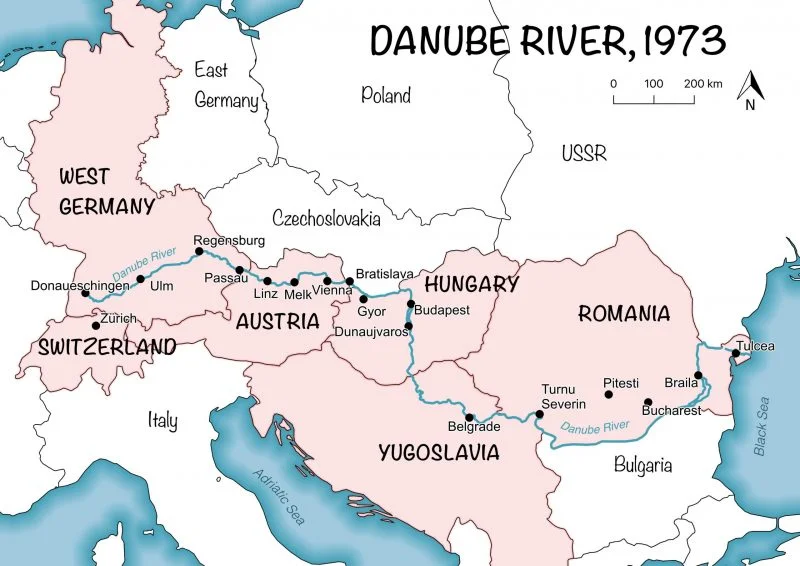
We quickly agreed that if I could meet him in Zurich in June then he’d cover my expenses from there to the Black Sea and get me back to Switzerland by the end of summer. In my bicycle addled mind, this would be my first real ‘international job’.
It was almost two different rides: first through well-heeled Germanic central Europe: Switzerland, West Germany, and Austria. Then less prosperous, more exotic and challenging places behind the Iron Curtain: Kadar’s Hungary, Tito’s Yugoslavia, and Ceausescu’s Romania.
I couldn’t figure out what I was supposed to do at first. We didn’t discuss my role in any detail. So I tried to treat it like a job, albeit an uncommonly pleasant one. I guessed I might serve as a buffer between Corny and 16 year old Patrick. But they got on famously, way better than my father and I had, when I was 16. We agreed I’d help care for their bikes but this didn’t amount to much. Unlike my old Peugeot, the graceful, feather-light machines they would pick up in Zurich were indestructible. Mostly I was a sort of shabby admin assistance, my French mediocre and my German worse. I’ve wondered, more than once, whether I was worth the trouble, all things considered. I expect the Burkes have too.
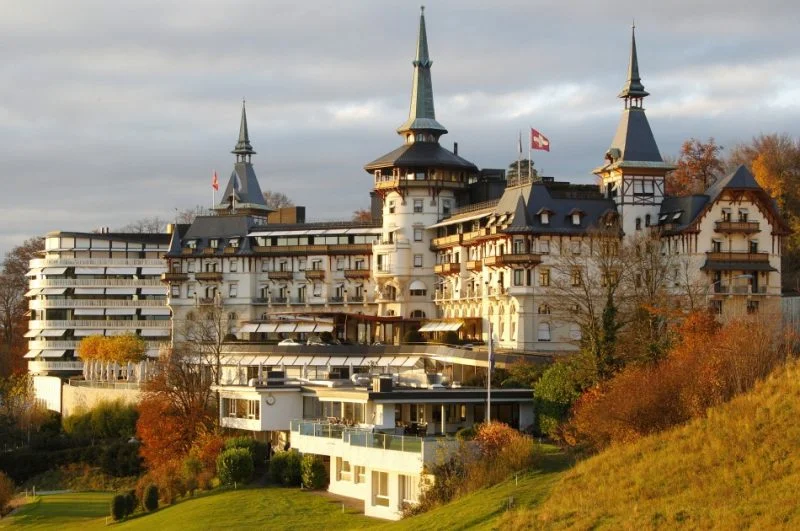
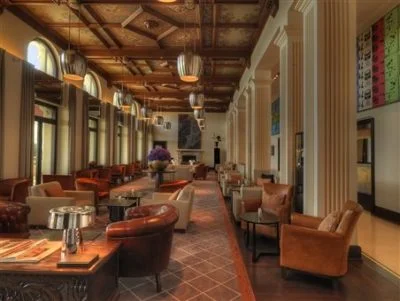
“You? Here?” – Getting to know the Swiss
“You? Here?”
After a week, I still wasn’t getting on well with the Swiss. This reception at the Dolder Grand Hotel would prove the worst but it had started as soon as I got off the plane.
„Aber was ist dies hier?“ (But what’s this?)
„Dies sind, uh, meiner Tools.“ (This are my tools.)
“Yes, but why have you all zees tools on an airplane?” This bastard’s English was miles better than my German.
“Well how else am I going to put my bicycle back together eh? And what am I supposed to do if it breaks and I have to fix it?”
“Ah you have a bicycle!”
“Yes. That would explain why all my stuff’s in these bicycle bags. And that big box over there? The one with ‘bicycle’ written on it?”
I’d already cycled 20,000 kilometres around North America that year but this was earning me little respect from this customs officer in busy Zurich airport where I began a lifelong low-level loathing of most things Swiss.
My attempts at sarcasm didn’t help but the bicycle revelation calmed him somewhat. It reduced the odds that I was a terrorist come to assemble bombs here in the Land of Heidi. It did not reassure him enough though and he kept going through my whole kit, minutely inspecting the wrenches and screwdrivers, spare spokes and inner tubes, lubricating oil, a tattered copy of Crime and Punishment, and on and on for what felt like an eternity.
The customs man wore prissy black gloves but I didn’t, so by the time every tool and spare part was back in my paniers and my noble white Peugeot reassembled, my hands were a little soiled. Jet-lagged and culture shocked, I stopped for a ridiculously overpriced coffee and croissant at an airport cafe, standing up, and standing out perhaps, amidst a gaggle of harried businessmen.
Soon I was riding through brilliant early summer sunshine, past opulent mansions along the Zurich See. Being itchy by nature, my hands inevitably shared bits of black grease with my face, neck, t-shirt and shorts. The resulting look proved inauspicious in a country much devoted to cleanliness.
„Aber das ist nicht moeglich, so schmuetzich sein! Sie sind zu schmuetzich!“ (“You are impossibly dirty!”).
„Entschuldigung! Verzeihung! War mein Fahrrad. Im Flughafen …“ I mumbled and apologised, barely coherent, trying to explain. I began to fear this plump old dear running the hostel at the far end of the glistening lake might be struck down by apoplexy. Then where would I stay? Surely, I reasoned feverishly, people must get dirty in Switzerland too?
Some did get dirty of course, but they were mostly Guest Workers. People from places like Spain, Yugoslavia and Greece who made up a quarter of Switzerland’s population in those years and did the dirty jobs. They didn’t stay in freshly scrubbed hostels though and most Swiss treated them like they were invisible. Franco Brusati’s brilliant film, Pane e Cioccolata (Bread and Chocolate), would capture it brilliantly a year later.
 The hostel manager grew more tranquil as I apologised one more time. My mangled German signalled that, while not a worker, I was indeed foreign. And such Smut was more understandable on a foreigner.
The hostel manager grew more tranquil as I apologised one more time. My mangled German signalled that, while not a worker, I was indeed foreign. And such Smut was more understandable on a foreigner.
Arriving in Switzerland a week before the Burkes, I had time to wander through their beautiful and exceptionally well organised countryside full of postcard perfect lakes and mountain peaks. It was hard to imagine a greater contrast with the trackless Canadian wilderness I’d just crossed. Laid off in Vancouver in May, I’d ridden to Montreal and flown to this strange land where each hill had a box of sand by the roadside every hundred metres; a phone booth every kilometre. I found this obsessive organisation irritating, claustrophobic after the unfettered solitude of the Trans-Canada Highway. Any time I found a truly empty stretch of Swiss road, the armed forces showed up to launch a noisy military exercise: jets roaring overhead, armoured vehicles lumbering by, trucks full of weekend warriors armed to the teeth.
“Oui? Je peux vous aider?” I asked impertinently. This stern plainclothes policeman had stopped me on a country road beside the flood swollen Aare River. This was happening once or twice a day now and had become tedious.
I knew he wanted to check what he would call ‘my documents’. And I’d learned most people in the German speaking cantons hated to speak French. So much for the country’s vaunted multilingualism. I also knew that, like many cops, he wanted me to call him “Sir”. So already I’d pissed him off.
“Documents please.”
He didn’t speak with me after that, didn’t even look at me until he’d had a good long inspection of my passport. Like the others, he couldn’t put his finger on what was wrong with me. I just didn’t look right, riding a dirty bicycle along his tidy Swiss road in the rain. He grunted and handed back my soggy passport. Not even the surly police of Hungary or Romania would be this annoying. Did they suspect I was a guest worker on the lam?
“Soixante, septante, octante, nonante…” Was she making up these nonsense numbers?
I’d dipped into the French-speaking region of Switzerland, where I assumed this pretty young clerk in a grocery store was joking as she counted out my change. I also thought it was a joke on that roadside cliff where someone had scrawled VIVE LE JURA LIBRE! in big bold red letters. The Swiss aren’t that jocular of course and years later I learned there actually were people in the Jura region striving to separate from Switzerland. I would have too, if I’d lived there. The strange numbers weren’t a joke either.
Despite their harassment and my confusion and youthful arrogance, the Swiss and I may well have reconciled. Swiss women had just gained the right to vote after all, so the country was moving in the right direction. And the cycling was superb. But then there was the Dolder Grand Hotel.
“Yes, can we help you?” This man behind a polished hardwood desk in the Dolder Grand spoke with the tiniest trace of an accent from somewhere. Italy maybe. But his English was flawless as were his smart black uniform and slicked down dark hair flecked with grey. “We” he’d said. Yet he was the only one at the desk. Had he enlisted me to help myself?
“Yeah, hi. I, uh. I’m looking for Cornelius Burke. I’m s’posed to meet him here.”
After a week of riding around Switzerland, it was time to meet up with the Burkes and head over the border to the headwaters of the Danube in a quiet corner of West Germany. Standing at the reception desk, hand on a bony hip, I felt comfortable and confident. My tattered shorts and t-shirt might be sweat soaked and my running shoes as fetid as usual and I hadn’t shaved in a while. But I’d showered often that week and felt squeaky clean. Propping my sunglasses back on my head, I wondered idly if the Dolder Grand got many guests like me.
“You? Here? You say you are supposed to meet someone here? You? Here?”
Did this tight assed hotelier feel I was ill suited to his establishment?
“Yeah, that’s right. Burke. B-u-r-k-e. Burke. Cornelius. He’s Canadian. Staying here. Probably got family with him too, I guess. He told me to meet ‘im here. So, you should have a reservation for me. Name’s Stewart. That’s with an ‘e.’ S-t-e-w-a-r-t.”
“You? Here?” This sneering servant of the monied classes had begun to get on my nerves. Perhaps I didn’t look much like the Dolder Grand’s usual sort of guest but there was no way I was going back down that hill. I’d ridden for hours across Switzerland that morning then half way up a mountain to get there; and this was where we were supposed to meet.
“Maybe there’s another Dolder Grand Hotel? You know, somewhere else nearby? We’re in Dolder, right?”
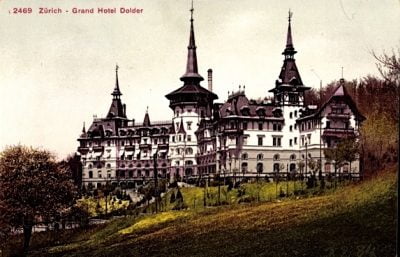
“Yes, this is Dolder” he snarled. “And no. There is absolutely no other Dolder Grand Hotel.”
“Well man, this is where I’m supposed to meet him.” I knew it was the right place. How was I to know it would be an opulent old hotel? I learned later that Henry Kissinger liked to hold meetings there. Nestled in the leafy suburb of Dolder, far up the steep slope behind Zurich, they had a magnificent view of the Zurich See.
“Stewart, you say. I’m sorry but we have no reservation in that name. There must be some mistake.”
He’d said this without taking his eyes off me, never once looked at his register. So, like that stinky but friendly filth-encrusted stray dog who threatens to rub up against your leg and make you stinky too, I refused to go away.
“I agree there must be a mistake if you don’t have a reservation for me. I mean, this is where I’m supposed to meet Burke. Today. So you’d better check again please.”
He actually looked at the register this time but just a quick glance, as though he feared I might pocket the pen on his desk while he wasn’t looking. I would have.
“Sorry, no reservation for Stewart”, even more prim and decisive this time.
“I’d better speak with your manager then.”
Staring daggers now, the receptionist flounced across polished tiles to the far side of their spotless entrance hall, glistening in the afternoon sunshine. He murmured something to a regal concierge ensconced behind his own oversized desk then to a nearby minion in hotel livery. After a brief but heated discussion he came back, now solemn and dispassionate.
“We can give you a room. But you must agree to our conditions.”
 They consigned me to the shabbiest space in the Dolder Grand, a small and windowless single room. I could not, under any circumstance, enter the reception hall again until I had proper clothing. When I wished to leave or enter, I would use the backstairs beside my room, going in and out of the hotel through a discreet side door at the bottom of those stairs. My white Peugeot must never again, for any reason, be seen anywhere near the front entrance.
They consigned me to the shabbiest space in the Dolder Grand, a small and windowless single room. I could not, under any circumstance, enter the reception hall again until I had proper clothing. When I wished to leave or enter, I would use the backstairs beside my room, going in and out of the hotel through a discreet side door at the bottom of those stairs. My white Peugeot must never again, for any reason, be seen anywhere near the front entrance.
Having spent many nights since Christmas sleeping in ditches and abandoned houses, derelict train stations and fifty cent hostels, I found the Dolder Grand’s worst room no great hardship. I adapted quickly to its soft white bed, spacious bathroom with a huge tub and elegant bidet. I soon learned that I could order anything I liked from room service. I nearly ate myself to death. Fancy buns and breads of many shapes and sizes, endless butter and cheeses and rich creamy yogurt. An immense selection of meaty Germanic salads slathered in mayonnaise arrived on an elaborate device resembling a little Ferris-wheel and I ate most of them.
The Dolder Grand might have been happy to prolong this luxurious solitary confinement indefinitely, though God knows how I would have paid for it. The only respectable clothes I owned had travelled with the Burkes. I phoned my friend at reception regularly, only to be assured peevishly that there was still no Mr. Cornelius Burke in their hotel, and almost certainly never would be. The impasse ended a couple of days later when I bumped into Patrick Burke by accident during one of my furtive forays out the side door.
 “Patrick! Wow. When did you get here?”
“Patrick! Wow. When did you get here?”
“We’ve been here since Tuesday. We’ve been wondering where you were. My dad was getting worried.”
“I got here a couple of days ago too. I’m just up on the second floor. They swore you weren’t here.”
The Dolder Grand never apologised for their slip up though I expect the Burkes had to apologise about me. I didn’t apologise to Corny either. The gravity of my transgression against the established order only dawned on me years later. Meanwhile, my punishment continued down in their elegant restaurant, where I was now permitted to join the Burkes wearing a pastel yellow shirt, paisley tie and flared wool trousers purchased for my sister’s wedding. The waiters, more immigrants from somewhere south of Switzerland had impeccable manners. Swathed in starched white shirts, black suits and ties, they insulted me about my choice of food and drink, my French, my clothes.
We left Zurich a couple of days later.
Getting Going in West Germany
“Hi Corny. I need to talk with you.”
“Of course. What is it.” That grin of his. How was I going to do this?
“I kind of, uhh. I don’t think you guys really need me on this ride, you know.” My ambiguous new job as a Boy Friday had been getting me down. I’d been building up to this for a day or two. Then I met Petra.
“What? Why do you say that?” Corny looked genuinely horrified.
“Uhhh, well, I just think you’ll be fine without me, you know. And I’m not much good at this kind of. You know. Tourism.” Already I felt silly, like an ungrateful slob, as the rank stupidity of what I was saying seeped in.
“But we’ll get going tomorrow. Wendy and Anne will be heading for France and we’ll get riding.”
“Well, I met a girl last night too, you know, a German woman. Maybe, maybe I’ll just stay here and hang out with Petra. She’s great. She’ll be here till she goes back to school in Freiburg.”
“What? You’re going to pack in this ride before we’ve even started? For that ball of fluff? You don’t want to do that. Come on, Howard. Think about it. We’ll get going tomorrow. Do some serious riding.”
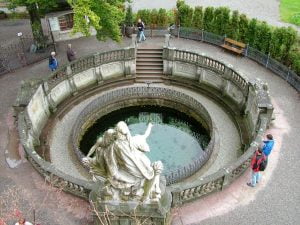
We’d arrived the day before at Donaueschingen, a pretty little town in the middle of the Black Forest. Thirty years after the end of WWII, French occupation troops were still there. A tiny spring called the Donau Quelle, tarted up to look like a wishing well, was the official source of the Danube River.
Patrick and I had visited an oompah bar the night before, while Corny, his wife, and their friend went out for dinner. We soon met Petra and Ziggy. She and I had spoken French and become friends. She’d found my sunglasses mysterious, I think, and hadn’t seemed worried when I revealed my eyes, suppurating again as they have been off and on since the swamps of Florida. Ziggy preferred to speak English and warmed up to red-headed, freckled faced Patrick. Evidently too young for the country’s post-war de-Nazification programme, Ziggy had warned us darkly about nasty Jewish landlords in places like Hamburg who’d once again taken to exploiting the poor old people who rented their flats.
I’d spoken with Corny about my waning enthusiasm just moments after our expedition’s official photos had been taken in front of the Donau Quelle. There was still no discernible sign that we were actually going to start to ride. Our entourage included Corny’s wife Wendy, and Anne, a recently widowed woman friend. They were awfully nice but they talked endlessly about nothing in particular and it looked to me like this slow-moving travelling circus would go on forever. I was used to riding, alone, for seventy-five, a hundred, a hundred and fifty miles a day. And I hadn’t had a decent ride in days.
Corny’s characterisation of Petra as ‘a ball of fluff’ felt unfair but I agreed to hang on a while longer. Wendy and Anne followed us down the river for a day or two in a rented van before leaving us to our ride through the backwoods of Baden-Wuertemburg and lower Bavaria. The Danube this far upstream was clean and fast moving, a little river running through farms and flowery villages, good for cooling off on hot days. Post-war Germany was a place of glaring contrasts. Some historic towns like Ulm looked like collections of concrete parking garages, brand new and soulless. Less bombed places like Regensburg remained quaint, beautiful, mediaeval. Others, like Passau on the Austrian border, were a mix of both.
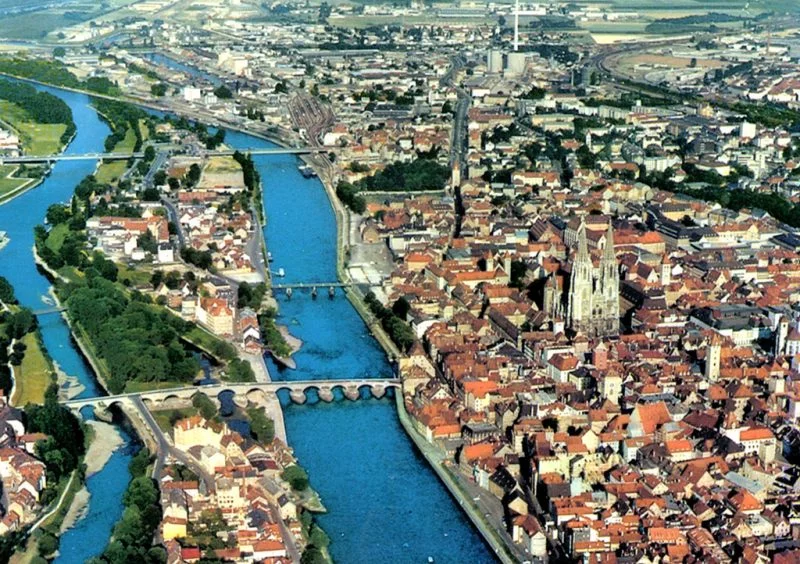
We got used to seeing crowds of beloved war dead in small-town taverns, legions of small black and white photos of young men gone forever. Many places also had a cenotaph in the middle of town crowded with names of the fallen. WWII dead on a side or two, those from the ‘Great War’ on other sides, a few from the Franco-Prussian War. Much like small town France. Houses we passed must also have harboured bigger and happier pictures of these ghosts, maybe medals extolling their sacrifices for the fatherland. I’d grown up with such reminders of lost fathers and brothers, grandfathers and uncles, people I’d never known but whom my mother and father and their elders still mourned deeply. Photos and medals conveyed the desired aura of sanctity to postwar children like me but they must have been pretty thin soup for anyone who’d actually known and loved the living, breathing boys consumed in those bloodbaths.
This was my first chance to really use my wretched high school German. Yet South German dialects, like much German in Switzerland, were rather different from the German one learned. People could decipher my Katzenjammer German but I was often mystified by their responses. Corny spoke basically no German at all, apart from Ein grosser Bier, bitte, yet he could connect with people effortlessly. I’d arrive at a Gasthaus in a place like Tuttlingen or Sigmaringen to find him chatting up delighted locals with smiles and energetic pantomime.
When he died, many years later, our local papers reported that Corny had been Canada’s most decorated naval hero of WWII. He and his young friends had run fast little gunboats on the Adriatic, the obituaries said, off the Yugoslav coast where they harassed German shore defences and brought supplies to Tito’s Partisans. Corny’s boat had come through many scrapes and won many daring engagements. He said almost nothing about this during our many talks, just occasional vague references to having been on the Adriatic in the war. Once though, in one of those cozy backwoods bars where we celebrated each day’s ride with a couple of Viertels of cool white wine, he turned unusually solemn.
“I had a terrible shock once, when I was about your age. Maybe a little older. I was standing on the bridge of our small boat, watching the shore. Then a shell whizzed by. A friend was standing beside me, talking to me. Damn thing took his head clean off. One moment he was there talking to me. Then, his head was gone. And blood everywhere.”
Southern Germany was more relaxed than Switzerland, the people disarmingly friendly and the riding sweet. Limestone cliffs towered romantically over lush green Swabian landscapes. The only fly in the ointment came when I finally learned the true meaning of a common road sign: Einbahnstrasse. I’d been looking at this for days. I understood each piece: Ein = one; bahn = line or lane; strasse = street. I found it curious because often the streets where these signs appeared were more than one lane wide. Why would they need to tell us how many lanes there were anyways, when we could see this for ourselves? I solved the puzzle one morning in Ulm.
Patrick and Corny were still asleep. Out exploring the dull town, a little lost as usual, I barrelled past another one of those enigmatic Einbahnstrasse signs and down a winding concrete ramp. I couldn’t see more than a few meters ahead of me so I had no time to stop when I suddenly came upon a young man walking his ancient black bicycle up the ramp towards me. Our steel and rubber steeds clashed with some violence though neither of us was hurt.
„Aber was haben Sie getan? Mein Fahrrad! Mein schoenes Fahrrad! Ist kaput! Was tun Sie hier? Dies ist eine Einbahnstrasse! EINBAHNSTRASSE! Was fuer ein Dumbkopf sind Sie?“ (What have you done? You’ve destroyed my beautiful bicycle! What are you doing in a one-way street? What kind of idiot are you?)
All good questions and I searched in vain for a clever comeback. The front wheel of my Peugeot was bent to a right angle but otherwise my bike was intact. This young gentleman’s venerable old black machine on the other hand was unquestionably a write-off. It looked almost as though it had been blown apart, with bits of it littering the pavement. In shock I suppose, its distraught owner stood there, holding handle bars above the mangled remains of what, moments earlier, had been a coherent piece of machinery. Perhaps even a family heirloom. It was my least relaxed moment in southern Germany.
„Oh shit. Verzeihung bitte. Entschuldigung. Ich wusste nicht. Ich weiss nicht. Oh verzeihung. Ja, wirklich ist er kaput. Ich weiss nicht…“ (Apologies and a lame explanation that I really didn’t know how this might have happened.)
Technically speaking, my excuse about ‘not knowing’, though implausible, was not untrue. While there was a sign at the top of the ramp that said Einbahnstrasse, I still hadn’t deciphered its true meaning before I descended the ramp. Yet I suspected that here, as in Canada, ignorance of the language might prove a weak defence.
I believed this distraught fellow was basically good natured — he was a fellow cyclist after all. But, unhinged by this wanton destruction of his treasured machine, and on an Einbahnstrasse to boot, he went on shouting. His broad south German was mostly unintelligible except for that haunting refrain: Einbahnstrasse. I stood there tongue-tied, ashamed, vaguely worried about possible legal repercussions. Desperate to look suitably contrite and sensitive to his loss, yet also decisive, I opened my wallet now bulging with Burke’s slush fund.
„Hier. Hier bitte. Nehmen Sie dies. Das is genug, nicht wahr? Das ist genug? Entschuldigung. Auf wiedersehen. Wiedersehen. Entschuldigung.” (Here, take this. That’s enough, eh? Sorry. Good bye. Sorry.) Sixty or seventy Deutsch Marks I gave him — surely far more than his damn bike was worth and it solved the problem. Contrite after a final stern warning about Einbahnerstrassen, I dragged my wounded Peugeot back up the ramp.
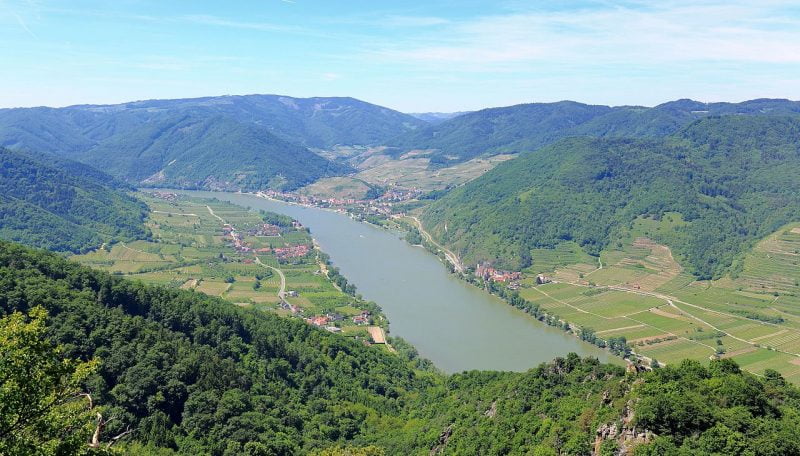
Austrian Interlude
Rural Austria was even more relaxed than southern Germany. The Danube valley there, the Wachau, is a wonderland of beautiful ancient monastery towns like Krems and Melk; hillsides cloaked in vineyards rise up from the glistening blue river. Today there’s even a bicycle path on this stretch and it must be a great ride, an easy and beautiful stroll through central Europe. The only discordant notes might be the remains of a Nazi death camp at Matthausen and the nagging memory that the little city of Linz will always be Adolf Hitler’s home town. Such thoughts might jangle the nerves of those worried by today’s rapid rise of populist, racist, xenophobic, neo-fascist movements in so many corners of the erstwhile Third Reich, from France to Russia. And beyond.
We had to climb a bit to get through the Vienna Woods and by the time we reached Vienna, Corny was finding the tight gear cluster on his fancy Eddy Merckx bicycle was ill suited to hills. The morning after we arrived, I ventured beyond the walls of old Vienna and scoured the boring heart of the modern city until I found a giant bicycle store where I pawed through their spare parts collection and scavenged a better freewheel for Corny’s bike. He thanked me profusely though we wouldn’t face another serious hill until eastern Serbia, many days away.
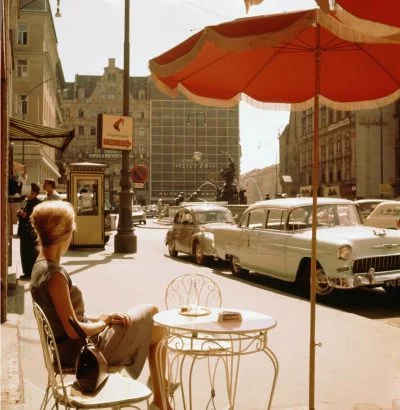
I could see why Carl, who I’d met the winter before in South Carolina, had been so enchanted by the old heart of Vienna. Story book Hapsburg palaces, outdoor bands playing Strauss waltzes and enchanting little cafes. But the cost of things! The equivalent of $2.50 for a tiny pastry and demitasse of coffee. It wasn’t my money of course but such outrageous prices went against the grain. To make matters worse, the coffee came in cups the size of thimbles and the pastries looked like fluffy postage stamps. The same money in a new world truck stop got you a stack of pancakes with unlimited syrup and as many coffee refills as you could swill.
It became clear that the Czechoslovak authorities had been stringing us along. Before leaving Canada, we’d spent weeks waiting for visas to enter their country. Now their embassy in Vienna told us they were very worried about hoof and mouth disease. So, while they were awfully sorry, they just couldn’t allow us to cycle across the river to Bratislava. It would take me 25 years more to get there.
The real reason for their refusal was Corny, who’d been in Prague in 1968 when troops from the Soviet Union and their eastern European allies had marched in and ended Dubcek’s experiment with liberalisation, the so-called “Prague Spring”. Wading through the crowds on Wenceslas Square and taking pictures, as usual, Corny had caught the eye of local authorities. For once, his charm had failed him and they roughed him up before throwing him in jail for a few hours. Our Canadian embassy in Vienna assured us this was probably the real reason for the Czechoslovaks’ refusal to let us in, five years later.
We pushed east across the flat plain instead, towards Hungary. Soon, we wouldn’t be in Kansas anymore. Or were we headed for a dreary workers’ Kansas after the Oz that was imperial Vienna? In any case, this transition from one world to the other began not with a twister but with twisted razor wire atop high fences and lookout towers where skinny Hungarians with bad haircuts and big guns peered down on us as we slipped into an empty border shed. They kept us waiting for hours before letting us cross.
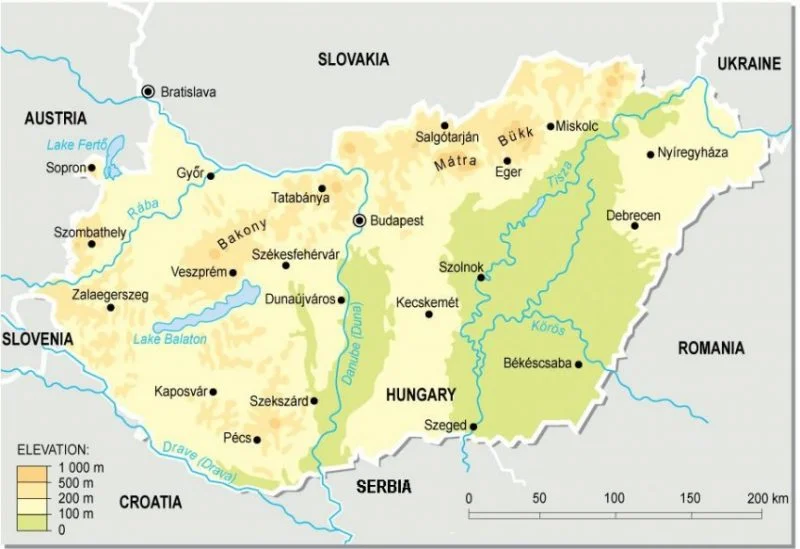
Present and Past in Hungary
“There’s no cars. Or almost none. Even right here in the middle of town” Patrick marvelled, “and I don’t recognise any of them”.
Corny knew them though: Skodas from Czechoslovakia, Trabants from East Germany, Volgas from the Soviet Union. Another thing about Györ, compared with Viennna, was the absence of tourist facilities. From there to the mouth of the great river, finding places to eat and sleep would prove more challenging.
“Yeah, this doesn’t look much like Vienna” I offered, honing a budding talent for extolling the obvious. “And I don’t get all that stuff back at the border. I mean all those guns and the barb wire? Who the hell would want to invade this place when they could stay in Austria?”
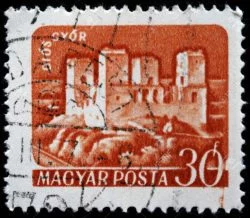
Behind the elaborate border security we’d found only more farmland, much like the Austrian side though poorer looking, with bad roads and poorly kept farms. Then we’d rolled into Györ. In Magyar, the Hungarians’ obscure tongue, Györ sounded like “dyer” – rhymes with her. A statue of Bela Kun dominated Györ’s town centre. The patron saint of Hungarian Communism, Kun had founded a short-lived socialist republic amidst the chaos of the collapsing Austro-Hungarian Empire after WWI.
We found an empty bar but it wasn’t much. We sat perplexed in that sad and silent place.
“I wonder where we might find a bit of supper?”
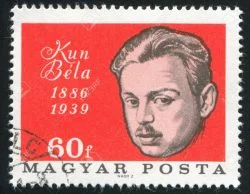
Corny spoke for all of us. Shoulders slumped and looking glum, he and Patrick were parked across a grimy table from me. But Corny was now eying me amiably again. Despite a demonstrated capacity for complicating their lives, he’d begun to rely on me to speak with the locals, sometimes, when all else failed. This was starting to look like one of those times.
The gloomy little barman looked at least as bemused by our presence as we were by his town. He stood behind the bar, polished glassware and eyed us suspiciously. When I pressed him for information about local restaurants and hotels, the barkeep frowned and squirmed like I’d farted or twisted his arm. Like many older Hungarians, he spoke some German. And speaking German was different here than it had been in Austria, where many peoples’ broad south German eluded me and where most who worked in hotels and restaurants spoke English. Patrick’s high school German was better than mine, I think, but he was shy and unwilling to humiliate himself before strangers.
I tried to pick up bits of Hungarian but it soon dawned on me that this arcane Finno-Ugric tongue needed years of work before one could communicate much of anything. By the time we reached the Yugoslav border I wouldn’t be able to say much besides “yes”, “no”, “hello”, “goodbye”, “thank-you”, “please”, “beer”, “wine” and “bread”, and count to ten. A Hungarian friend back in Vancouver later pretended she didn’t understand any of these things I said in Magyar (say “mad yar”). I expect this was just a matter of different regional accents.
„Gibt es ein gutter Hotel hier in Zentrum?“ (Any good hotels downtown?)
„Nein.”
„(Maybe a restaurant?)“
„Nein.”
After a couple more of his unhelpful replies, I ran out of things to talk about with the barman. Was it possible he didn’t want his neighbours to see him speaking German with a decadent westerner?
“Hello there. Welcome to Hungary. Are you looking for a place to stay? And maybe something to eat?” This tall, smiling, middle-aged man in a white shirt and tie appeared out of nowhere just as we’d begun to despair, and I to feel somehow responsible.
“I can show you a place a few kilometres from here. You can come with me to have a look if you wish.” The helpful fixer was pointing to me. “It would be better if the old man and the boy if they waited here, to guard your bicycles.”
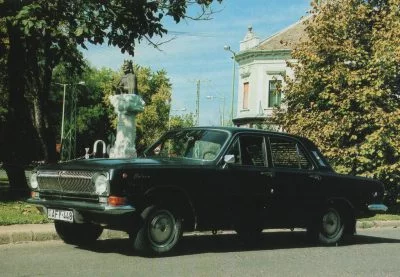
Our new friend pumped me with questions as we left Györ and headed back into the great Hungarian plain in a comfy black Volga. He wanted to know about our trip, our plans, our origins, our destination. There were only certain hotels where foreigners could stay in Hungary, he explained, and none of them was near Györ. But he had a woman friend who could probably put us up for the night.
His friend was in her forties maybe – how could a twenty-year old judge such a thing? Maria was very short and plump with thick and luxuriant black hair reaching almost to her waist. She recoiled from my blatant foreignness at first, even more than the barman had. But the handsome fixer soon charmed her. Or did he threaten her? Whatever he said, she came around in a minute or two.
“Maria says she can offer you only simple food, simple beds. It’s not much but it should be good for tonight. You can just stay here now. Don’t wander around. You can pay her before you leave tomorrow morning.”
“It’s not very much but it’s all I’ve got.” squeaked Maria, glancing at me nervously. She had an improbably high-pitched squeak of a voice, like a mouse or a little bird in a cartoon. Smiling shyly now, she apologising for the damp, low beds squeezed into a dark windowless room. It was sparse indeed after our comfy hotel in Vienna but it was perfect. After travelling with the Burkes for a while, I had lost my taste for sleeping in ditches.
The black Volga man went back to collect Corny, Patrick and our bicycles while I chatted with Maria. More relaxed now, she talked non-stop. Her German was pretty good, by my standards at least, and her unique voice made her easy to follow. Maria was a widow, she told me, though she didn’t say more about her defunct partner. She’d lived there, not far from Györ, her whole life. I would have loved to know more about that life. Had great waves of people and armies rolled by here when she was younger? Was her husband killed in the war? Sent to Siberia? I didn’t get a chance to ask. I’d have to wait and discuss such things with Lazlo the following week.
“This food is spectacular. Thank you so much Maria. Danke. Danke.” Maria blushed like a schoolgirl each time Corny flashed his toothsome grin. He was given to exaggerated praise but this time even Patrick and I had to agree. As soon as the Burkes had arrived, she’d offered us an evening meal of milk, bread and butter, and red wine, apologising profusely all the while for this humble fare. Her dense black bread was heavenly. We’d eat much more of this in coming days, one of the culinary highlights of Communist Hungary. The following morning there was also tea, cheese, jam, and slabs of butter.
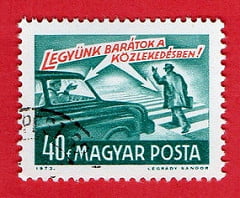
“I wonder if I could have a little more butter Maria?” She looked at me as though I was insane. Only when we’d been in the country a little longer would I understand that we had probably just finished off Maria’s monthly ration of butter in two meals. On the other hand, she’d probably have been able to replenish her supply on the black market with the small fortune she earned from our stay.
“Bitte, bezahlen Sie mir hundert Forint” squeaked Maria timidly, fidgeting and eyes downcast as she requested a hundred Forints for our evening meals, beds and copious breakfasts. You looked like she felt guilty about it and was waiting for us to howl in protest over this highway robbery. But this was what she’d been told she must charge, she said.
“No problem Maria and many thanks again for taking care of us” I replied, beaming like other two.
We didn’t feel hard done by because Maria was asking for the local equivalent of about four dollars. She almost fainted as Corny forked it over — no whining, no complaining — and gave her a little tip besides. Maria’s was the most rustic place we’d stay in Hungary, by far. The next time we found ourselves somewhere like it, amidst watermelon patches in the far north east of Romania, I would be passing out from pain. But I’m getting ahead of myself.
“My ass hurts” said Corny. This was about the only thing he ever complained about. Hungary’s gentle rolling plains were like Saskatchewan except they were covered with endless fields of corn and sunflower instead of wheat and rapeseed. It made for easy riding but prairie riding could also be hard on the bum because you never get up off the seat. My own rear had long since become indistinguishable from my leather bicycle seat.
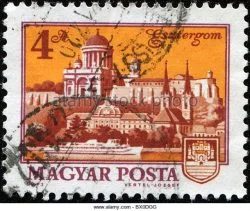
We began riding a bit farther some days. We had to, if we wanted to get to the next hotel. We knew now that we must aim each day for one of those special establishments permitted to host people like us. Our first day after Maria had ended at a beautiful old estate hidden in a little forest in the middle of nowhere and converted to a party hotel. Then on to the charming millennial town of Esztergom overlooking a great bend in the river; the place was known in those days as the home of Cardinal Minszentszy, an outspoken critic of the Communists.
A relaxed modus operandi had emerged, wherein we shifted between riding in pairs or riding alone or, occasionally, all three together. Corny often preferred to seek adventures on his own. His inimitable communication style worked as well in the backwoods of Hungary as it had further west and he made new friends each day. I, on the other hand, remained obtuse and impatient, unable to savour the journey the way Corny did. I was still driven to distraction by what felt to me like our snail’s pace. Decades later, this pace of seventy to a hundred kilometres a day looks perfect; perhaps a little ambitious.
“Jesus Christ Patrick! Look at this. I don’t think I’ve ever seen something like this. What the hell happened? Look. It goes on and on. All the way down the road.”
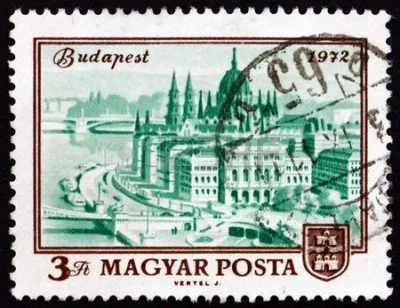
We’d come upon piles of rubble lining the road that led south into Budapest. I wouldn’t see anything like it again until Beirut 20 years later. WWII and the Hungarian Revolution of 1956 were ancient history for people like Patrick and me. Yet for the government of Janos Kadar, and his Russian minders, 1945 and 1956 were never far from mind. Hungarian friends later told us this part of the city was deliberately left this way. They hinted it had done by the Russian tanks that had finished off the Hungarian uprising in 1956. I’m not sure though, how much of this devastation was from 1956, and how much from Allied bombs and Red Army cannons at the close of WWII. Either way it was a not very subtle reminder of what happened to those who stood up to Big Brother Ivan. Budapest grew more charming further south.
“This place is spectacular! It’s like a cheap Vienna!”
Ever mindful of prices and of the wonderful exchange rate on the forint, I found central Budapest delightful. Especially the Grand Hotel where we lodged for a couple of days. A frayed yet still marvellous nineteenth century gem, with big comfortable rooms, good food and great views, it was set in an island in the Danube. Another place like the Dolder Grand that I would never have come near had I not been with Corny; like the Dolder Grand, the Grand Hotel on Margit Island would extract its pound of flesh.
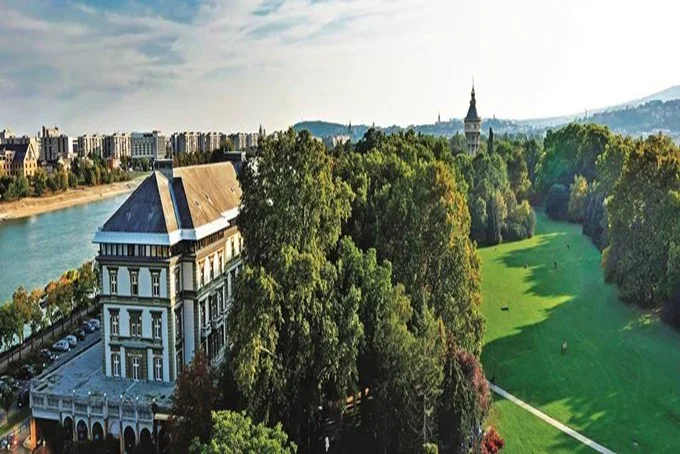
 “We’ll meet an interesting friend of a friend of mine here in Budapest” Corny promised, over a glorious, copious Grand Hotel breakfast. “She’s a relation of one of those Hungarians who’ve done so well in BC since the war.”
“We’ll meet an interesting friend of a friend of mine here in Budapest” Corny promised, over a glorious, copious Grand Hotel breakfast. “She’s a relation of one of those Hungarians who’ve done so well in BC since the war.”
Katarina was pretty and dark haired and spoke English very well.
“We’ve been divorced for a few years now. What can you do?” she shrugged. “You know, how do you say, the shortage of housing is so severe here. I couldn’t really find another place to live. Nor could he”.
So, she still shared a tiny flat on the hilly west side of the river with her ex-husband.
Happily for Katarina though, her family also had a dacha a few miles upstream, a rustic summer cottage on a little sandbar covered in trees called Lupa Island. All windows and porches, it hung out over a stream now spread to majestic proportions. We rested our bums and swam in the broad brown river, drank red wine and ate more of that heavenly black bread.
“Oh thank you so much! This is extremely helpful. I never would have figured out how to do that.”
I had repaired one of Corny’s tubeless racing tires. Many will attest to my severe limitations when it comes to technology of any sort. All I did that evening on Lupa Island was open the threading that bound the outer layer of Corny’s high pressure tire then patch the narrow tube inside and sew up the outer tire again. It was the second and last useful service I’d provide to their bicycles on the whole trip. Once again, Corny was effusively grateful.
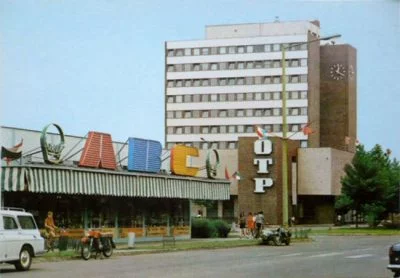
The Burkes spent a day exploring Budapest while I rode down the right bank in a fruitless visit to the soulless little industrial city of Dunaujvarös. I was hoping to meet a friend’s father who lived there but he wasn’t home that day. Later Kathy told me his neighbours, none of whom had said a word to me, had reported a suspicious looking western hippy snooping around his place.
On the way back to Budapest I stopped at a tiny roadside café where I instantly fell in love with a voluptuous blonde woman. About my age with beautiful, luminous eyes, she wore short shorts and a white blouse tucked up between her breasts, exposing a delightful white belly. We communicated only with smiles. After swooning a while, I lead her out to show off my wheels. Then, as quickly as it had bloomed, our whirlwind romance was over. It turned out she was not interested in my scrawny sunburnt body after all, just a ride to Lake Balaton – a summer resort place west of there. Her male friends waiting outside scowled at me.
We rolled out of Budapest together the next day, south down the left bank through an endless procession of still villages coated with manure. I couldn‘t figure out where the inhabitants had gone but didn’t blame them for leaving. One could imagine these villages being picturesque, some of them even charming, had there not been so many broken windows and so much dirt. The copious mud and manure reminded me a bit of rural Gloucestershire but without the pubs and hills, flowers and well-kept stone walls.
I began a little odyssey within our greater odyssey that afternoon. We’d been back in the wide Hungarian plain since midday – the usual fields of corn and sunflower stretched over the horizon and, praise be to Marx, not a fence in sight. It had been a bright hot day but now, late in the afternoon, tall poplars shaded the road. I came up beside Patrick; we discussed whether our hotel that night would have hot water.
“H’lo Patrick. Where’s your dad?”
“I left him maybe an hour ago. We stopped in a little bar and he stayed to talk sign language with some farmers. Oh no, here comes a car.”
“Why do these buggers honk so much?”
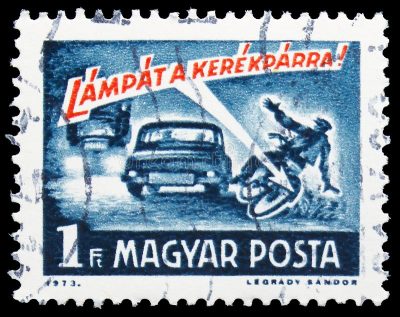
The black Volga had started hitting its horn, as they always did, when it was still a hundred metres behind us. It blared on, as though we were a gaggle of geese that might suddenly leap into the road in front of them, and it kept blasting as they rumbled by.
“D’ya think they think we don’t know they’re there?”
“Nah. They prob’ly just want to watch us drive into the ditch and cower while they zoom by us. Is power thing comrade.” I’d begun to shed my illusions about the workers’ paradise.
Corny wasn’t there so I’d been free to give the Volga my middle finger. He disapproved of this, I knew, but I felt it was my only defence. This time, as I saluted them, they slowed down, opened the window and roared something at us. Had someone taken offence at my cryptic message? For an instant I fretted they might stop and ask to see my passport.
My passport. Hungarian hotels dutifully confiscated our passports as soon as we checked in, giving them back only after Corny had settled our bill the next morning. Was this so they could pass our details on to the KGB? Or just a way to make sure we didn’t skip out without paying? The hotels never actually offered to give our passports back; we had to ask for them. Then they’d look at us like we were trouble makers and fuss for a few minutes, as though they’d lost them. I’d almost forgotten to collect my passport in Esztergom. And, as the dust from the obstreperous black Volga settled around us, it dawned on me.
“Oh no. Fuck it. God damn it Patrick, I think I forgot my passport in Budapest.”
“Oh no! Are you sure? What are you gonna do?”
“I do’ know. Go back to Budapest I guess.”
“We must be sixty miles away. How’ll you get there? Maybe the hotel can send it to you.”
“Yeah. I guess I’d better phone ’em anyway. I wonder how to do that.”
Things moved fast, at first. In the next village down the road there was no mistaking what we needed: telefon is an international word. And the post office had one. They had just closed for the night but the young man in charge was still there and I could talk with him through the bars of a tiny window at the back of the building.
“Bitte. Koennen Sie Deutsch?” I wondered desperately whether someone this young, and this far south, might speak German.
“No… Yes… Yes a little.” First in Magyar, then German. Thank God for small mercies.
I felt as though we were instant friends. His German was limited, he said, yet he understood my problem and felt my anguish and quickly agreed to call the hotel on Margit Island.
“Yes, they have your passport. It’s there in the Grand Hotel.”
“Good. Good. Thanks a lot.” I blubbered, melting with relief and gratitude.
“So you’ll have to go back to Budapest.”
“Oh fuck” I blurted, in English, but the German’s pretty close.
Of course. They wouldn’t dream sending it to me. And without my passport I couldn’t spend the night anywhere else. How was I supposed to get back to Budapest that night? They probably thought they were doing me a big favour just by holding on to it until I got back to pick it up. It would be dark soon. How in the world could I get to Budapest?
“But how can I get back to Budapest? We’re on bicycle,” I whined.
Our friendship was fading as fast as it had bloomed. My postal clerk behind the bars was no longer smiling but glanced peevishly at the clock on the wall. My problem was becoming complicated and it was getting late. It wasn’t his fault that I was riding a bicycle. Or that I had been stupid enough to leave my passport in Budapest.
“You can take the train to Budapest,” he offered as he bolted out the door and disappeared.
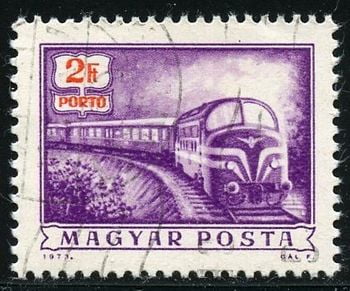
Of course, the train. How else? I promised Patrick I’d meet him and his dad at their hotel as soon as I could. We all knew exactly where that hotel was because it was the only one open to us in that part of the country. Patrick set off in one direction and I rode off in another, to a town with a train station a few kilometres away.
Nobody there admitted to speaking German or French or English. Why would they? They had no problem understanding “Budapest” though and sold me a ticket to get there. “Bread and red wine please” and “I don’t speak Hungarian” were the only Hungarian phrases I had mastered since an early burst of enthusiasm for the language. So it wasn’t surprising that I failed to understand, at first, that I wasn’t on a direct train for the capital. This became clear only after I noticed our train was not headed north towards Budapest but away from the setting sun instead, northeast towards the Soviet border. I began panicking at the prospect of arriving there without a passport.
After much sweaty confusion and abuse of several languages, I understood that I needed to get off this train up ahead, somewhere, and board another one bound for Budapest. I learned this from Lazlo, a beefy middle-aged red head in a rumpled suit who befriended me soon after I’d climbed aboard. Lazlo and his wife were also headed for Budapest, they said, so they would change trains with me. Without them, I’d surely have ended up lost in the middle of the night, somewhere between the Danube and the Ukraine. They shared their picnic of tomatoes and cheese and sausage with me. Lazlo spoke German even worse than I did yet he used it to good effect and regaled me with stories of a Second World War childhood.
“They bomb our house. Yes, the Americans. And the pilots were black. Black! I could see them there, from my house. It was terrible. Terrible! Yes, yes. Truly. Black pilots!”
Lazlo stared intently as he spoke, keen to see my reaction. A look of profound horror filled his own broad face as he described the diabolic grinning faces of these black men – Yes, black men! – who piloted the American warplanes that had attacked his childhood village. The pilots’ blackness was clearly at least as horrifying as their bombs. I grew a little sceptical as Lazlo rattled on. Could someone really see the colour of a pilot’s skin as they zoomed past overhead? Had the US Air Force really allowed African Americans to be pilots in those days? But I kept such speculation to myself; it was way beyond our shared language skills. I could have tried to say something simple like “I don’t believe you!” or “That’s not possible!” But if I had, then I would have been hard pressed to explain why. Lazlo’s story was preposterous but I needed him on my side. So, I just looked suitably shocked and sympathetic.
Or maybe I didn’t. Lazlo, who had been so helpful at first, somehow managed to misunderstand what part of Budapest I was headed for, though I explained it to him repeatedly. Maybe he resented that I was headed for that swishy hotel on Margit Island? Or did he feel I somehow shared responsibility for those diabolical grinning Schwarzers who’d dive bombed his childhood home? For whatever reason, Lazlo insisted I get off the train at what he assured me was the right station. So I did, and the train was gone.
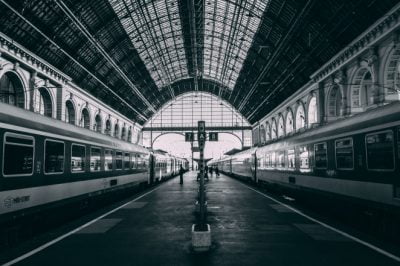
Approaching midnight now, the station was almost dark and very still though a lonely station master remained on the job. Considering the generous numbers of people assigned to do any job in Hungary, I reasoned, this could be a place where few people ever got on or off the train. I might have been the first person to get off there in days. It had certainly been a while since the sleepy railway man had seen a soiled young westerner with a beat-up white bicycle. He was not a great linguist though very pleasant despite the imposition. Through pantomime we agreed that I would travel more easily through the dark Pest night if I left my saddle bags at his station, where he would take good care of them for me.
In retrospect, I guess that his suggestion to leave my bags behind was the station master’s genuine attempt to help. But it was as absurdly unhelpful as getting off at this station in the first place. As I rode off on the dark streets, I quickly deduced that this station must be the very first one inside the greater Budapest city limits and still far from Margit Island. What in the world had Lazlo been thinking?
Riding north in the darkness, I encountered a lone policeman every few hundred meters, each stationed at a dimly lit street corner. Every one of them stopped me to point out that I didn’t have a light on my bicycle. To each, I offered a garbled explanation about a forgotten passport at the Grand Hotel. Then, after I’d blurted out my story in a messy cocktail of languages, each wanted to see my passport. And I had to explain again why I didn’t have it.
Surely it was a sign of mellowing within the Communist system in that decade of détente, or at least in Kadar’s Hungary, that not one of these policemen pursued the matter beyond that. They all had choice things to say to me in Magyar but they were also happy to have me ride off into the night again. Only a few years later, in the midst of another Kafkaesque experience during a very long night on East German trains, would it finally dawn on me: These minor officials working for oppressive regimes — post masters, cops, hotel clerks and so on — really just wanted one thing. They wanted you to go away, to stop disrupting their routine, and to not get them in trouble.
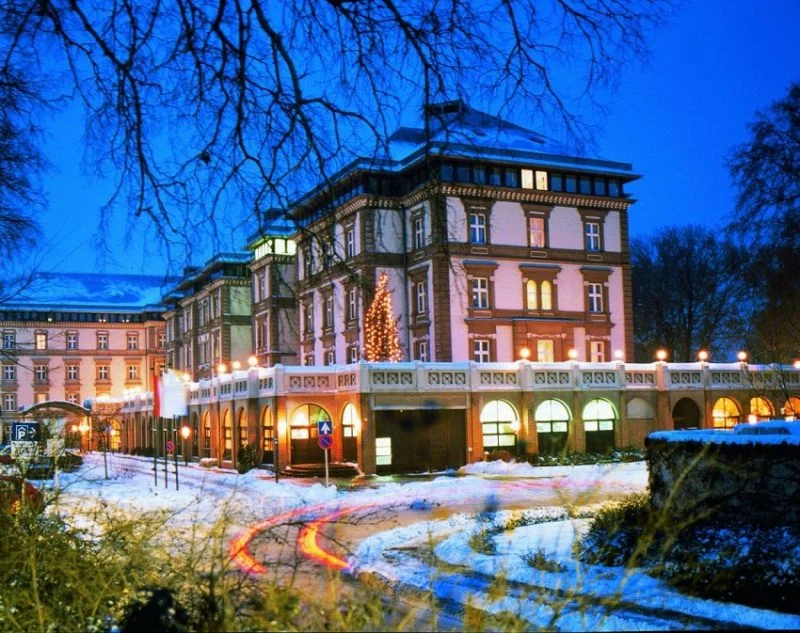
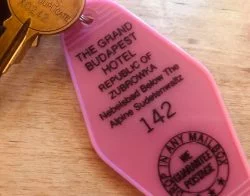
It was about two in the morning when I finally made it to the Grand Hotel, lit up like a Christmas tree on its island in the river.
“Oh, there you are Mr. Stewart. Why did you leave your passport here?” The young clerk frowned at me like I’d broken a rule in kindergarten. His condescending tone left no doubt that I was genuinely stupid. I could have been back at the Dolder Grand.
They quickly gave me my passport though. Hardly listening to my story of misadventures on the train, they shoved me and my Peugeot into a taxi. It wasn’t clear what instructions the hotel people had given the driver though they must have told him I was in a hurry. He certainly was, and he was sure he knew exactly where I needed to go. We roared through narrow cobblestone streets at a hundred kilometres an hour as I cowered in the backseat. In no time, we were in front of a large station in the middle of Pest, where the driver joined the growing legion of Hungarians convinced that I was an idiot. I insisted this was the wrong station. I had given up caring about nuances. “Nem” was all I said, refusing to get out of the taxi, like when that dog ends your walk by just lying down and refusing to move. I wouldn’t get out, or pay him, until we found the right station. Unfortunately, I couldn’t offer little help with the names of streets or neighbourhoods. But I knew was the general direction of my station, and what it looked like.
By the time we finally came upon that lonely suburban stop, the taxi driver had almost convinced me that it didn’t exist. But it did of course and the friendly station master was waiting patiently with my bag and had me back on an eastbound train within an hour. This time I knew where to change trains and I knew where to get off at the far end. So, all I had to do was sit back, relax and stay awake long enough to change trains.
 Staying awake was easy in a train full of boisterous Hungarian conscripts doing their national service. Mostly between twenty and thirty, relaxed and unshaven in rumpled threadbare uniforms that looked like the ‘army surplus’ we in the west had worn in the sixties. Many were very drunk. They befriended me and shared their drinks as we regaled each other with short vignettes in incompatible languages. Apart from that, their favourite pass time was ‘bait the Russian’.
Staying awake was easy in a train full of boisterous Hungarian conscripts doing their national service. Mostly between twenty and thirty, relaxed and unshaven in rumpled threadbare uniforms that looked like the ‘army surplus’ we in the west had worn in the sixties. Many were very drunk. They befriended me and shared their drinks as we regaled each other with short vignettes in incompatible languages. Apart from that, their favourite pass time was ‘bait the Russian’.
The few Russian soldiers on our train were tense, freshly scrubbed teenagers in crew cuts. Stiff and sullen in smart new uniforms, I felt a bit sorry for them. They reminded me of American marines on parade in a hostile land, bereft of their usual license to kill. The Hungarians made no effort to hide their intense dislike for these younger Russians and teased them mercilessly. The match was one side because the Hungarians spoke some Russian while the freshly scrubbed Russians, like virtually the whole world outside of Hungary, spoke no Magyar.
Each time a hapless Russian boy walked into our car the Hungarians took turns saying things to him in Russian. Things like “Good evening comrade.” “Can we help you?” “Are you lost?” They’d wait for him to reply then add a comment in Magyar for the benefit of the crowd. Each Russian reply, and especially the Magyar commentary that followed, brought down the house. With the audience in hysterics and trying desperately to keep the Russian engaged in further conversation, he had no choice but to retreat from the car, red faced and tongue tied.
It was a short beautiful cool bike ride to the hotel through a glistening summer dawn. I arrived, desperate for a cup of coffee, as Corny and Patrick were getting out of bed. Corny was grinning, as usual.
“Great to see you. We were wondering when you’d show up. Tell us all about your night.”
After breakfast we rolled off towards Mohacs, a place revered by Hungarians, the site of their glorious defeat at the hands of Suleiman the Magnificent in 1526.
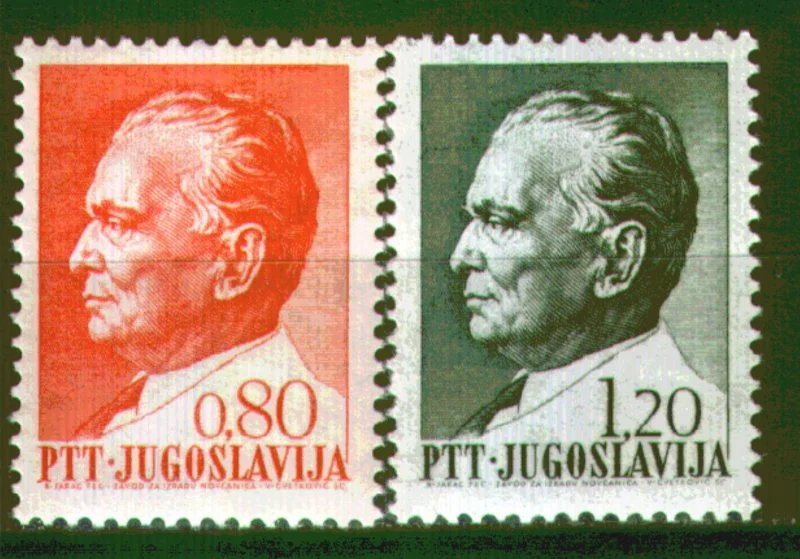
A Close-up Look at Tito’s Yugoslav Miracle
 Again, armed guards made one nervous as they gazed down from their wooden tower beside a deserted border post where we crossed into Yugoslavia. Hungary had been a sobering experience. We’d finally managed to elect a social democratic government in BC a year earlier, dislodging the tired ‘free enterprise coalition’ of car dealers and real estate developers that had held power in Victoria my whole life, building highways, giving away our resources, and throttling the unions. I’d really wanted to see socialism working in central Europe. The dysfunctional economy, dull witted bureaucracies, and Soviet bullying I’d found in Kadar’s Hungary was not what I’d hoped to find.
Again, armed guards made one nervous as they gazed down from their wooden tower beside a deserted border post where we crossed into Yugoslavia. Hungary had been a sobering experience. We’d finally managed to elect a social democratic government in BC a year earlier, dislodging the tired ‘free enterprise coalition’ of car dealers and real estate developers that had held power in Victoria my whole life, building highways, giving away our resources, and throttling the unions. I’d really wanted to see socialism working in central Europe. The dysfunctional economy, dull witted bureaucracies, and Soviet bullying I’d found in Kadar’s Hungary was not what I’d hoped to find.
Yugoslavia was widely hailed as a success story in those days, an astute model of mixed socialism and capitalism where multiculturalism was succeeding. Gloomier analysts suggested it was only the iron hand of Josip Broz Tito holding together that federation of southern Slavs. Tito and remittances sent home by millions of Yugoslav guest workers from places like Germany and Switzerland. The pessimists suggested the whole place would probably burst apart like an overripe plum the moment Tito died. These views, like those that predicted a similar collapse of the Soviet Union, were easy to dismiss as western propaganda, right-wing extremism.
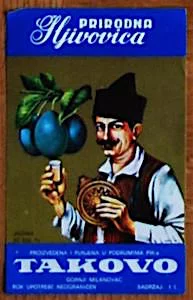
“Oooh God. This place reeks. What is that smell? Every little place we go through around here smells like… I don’t know, it’s like it’s drenched in some kind of rotten fruit. Or something somebody just puked up.”
Apart from this curious redolence, I wasn’t unhappy with the villages of northern Yugoslavia, more relaxed and welcoming than those in Hungary. The roads were good and the riding pleasant, with a few hills again.
“That’s slivovitz. Plum brandy. When it’s good it can be very good” said Corny, something of a connoisseur, “Maybe out here in the villages, it’s not so good. Look. On the wall. Tito.” Was he trying to change the subject?
Marshall Tito was indeed gazing down on our table in this little roadside restaurant; stern and unsmiling in a smart uniform covered in medals. Working in Africa in future decades I would often see such ‘cults of personality’. The strongest of African strongmen, Siaka Stevens in tiny Sierra Leone or Sese Seke Mobutu in giant Zaïre, would hold together their own improbable, fissiparous collections of tribes until they died, much the way Tito was doing then in Yugoslavia. Leaders like Tito offered the rulers of newly independent African countries much practical instruction in how to succeed. One winning technique was to put your image everywhere — in every public place, on stamps and on the nation’s money. Another was to claim a link, preferably a family tie, with as many of the country’s ethnic groups as possible, then play them off against one another. Finally, eliminate any rival who you can’t pay off.
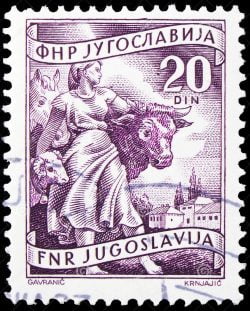
“We like it here very much. The people are very kind. They treat us well and we are learning a great deal. They have great expertise in growing maize. And the food is good.”
Corny had struck up a conversation with these friendly, well-dressed young men, obviously foreigners like us. Agronomy students from East Africa, they’d come to learn how they might improve corn yields back home. Like Hungary and Romania, a great deal of Yugoslavia was covered in corn fields. With his new friends translating, Corny could engage with the wrinkled old men who sat beside us nursing their slivovitz.
“These old men say that if you are headed down the river then you must be careful of the Serbs. They say that Serbs cannot be trusted.”
We had started our Yugoslav ride west of the river, in the eastern reaches of Croatia. Now, for the first time but not the last, local people were warning us to be cautious in dealing with Yugoslavia’s other ethnic groups. Later we would receive warnings from helpful Serbs. “Watch out. You can’t trust the Croats / Albanians / Bosnians / …” These cautions reminded me of the matronly old waitress in rural Louisiana who’d clucked over me months earlier, insisting in a kindly and worried tone that I must “watch out for the niggers”.
“Please tell them we are very grateful for the warning” Corny replied. “And tell them I was on the coast of Yugoslavia when I was younger, helping their Tito win the war.”
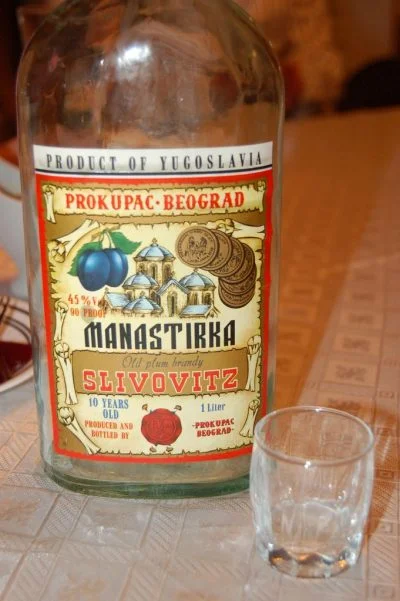
Corny watched the old gents carefully as the African student translated, hoping to see some interest in this story from their recent history. One scratched his big, hairy ear while he wiped his nose, apparently deep in thought. The other finished off his little glass of slivovitz and ordered another round from the silent old woman behind the bar. None of them said a thing or even looked at Corny, who was left uncharacteristically speechless. If they were interested in his story then they were doing a good job of hiding it. Like the odour of slivovitz, this stony disinterest would follow us and become a pattern, especially among the Serbs downstream. Corny didn’t mention the honours the Royal Navy had bestowed upon him for his feats in the Adriatic of course. Maybe these old gents today had been on the other side, among those Croats who fought beside the Nazis? Or maybe, like the Serbs we’d meet other days, they just didn’t care much about what had happened on that far away Dalmatian coast?
Like so much of what I was seeing, the depth and intensity of the differences that divided Yugoslavia’s people in those days would only make sense over time. At a university bar, a year later, I proudly announced to a pneumatic Croatian Canadian woman from Toronto that I could speak a few words of ‘Serbo-Croatish’. This was the name of a hybrid national language that Tito promoted. Much like Urdu and Hindi in south Asia, Serbian and Croatian are languages that share common origins and much vocabulary and grammar; they’re almost the same language.
“What is Serbo-Croatish? There is no such language” she snarled. “There never has been and there never will be.” She turned around, walked away, and never spoke to me again.
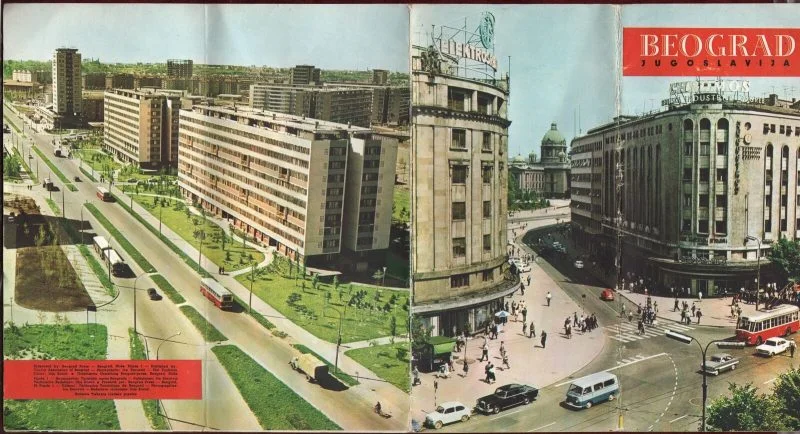
Belgrade, the capital of all of Yugoslavia in those days, was very different from Budapest. From a historical perspective, one of the city’s main claims to fame seemed to be that it had been destroyed so many times by enemies invading from all sides. I learned this from student guides propped up at the front of our tour bus as it rattled around town.
“Our city has been razed fifteen times over the centuries” claimed the first guide, in English.
“Belgrade has been completely destroyed thirty times over the past thousand years” said the next one, in German.
“Our capital has been wiped out and rebuilt exactly twenty-five times since it was founded” chimed in the third guide, in French.
And on it went, each telling different stories about their city in English, German and French, each assigning different names, dates and stories and functions to the various sites we passed. Patrick and I were first confused then fascinated by this early display of post-modernism.
“Do you think they’re doing it on purpose?”
“Or they just don’t know what each other is saying?
“Maybe they just don’t care very much?”
“I dunno. Or maybe they’re ad-libbing, you know, just playing around, to make their job more fun.”
I didn’t consider that they might have each from a different ethnic group, each determined to tell a unique story about their shared capital.
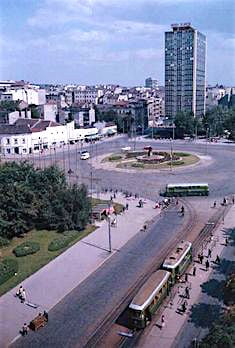
We took up residence for a few nights in the Hotel Slavija, a modern high rise that dominated the centre of the city, a towering monument to Tito’s version of scientific socialism. Like the rest of Belgrade, the Slavija had risen from the ashes of WWII and was by far the biggest place we stayed on the whole trip. Comfortable enough, though roughly finished, its toilets didn’t work very well, our rooms had an odd bouquet, and the staff pilfered some of our belongings. A Canadian diplomat came to lunch with us on our second day and gave us a briefing on Yugoslavia. Corny obviously had some guanxi in Ottawa.
Traffic was heavier than in Budapest, mostly tiny Yugoslav-made versions of the Fiat 600. As in Hungary, sidewalk kiosks did a brisk business selling lotto tickets, low priced dreams against the odds. These hadn’t yet become the ubiquitous feature of western society that they are today. But these socialist regimes had already identified them as a good way to channel their people’s aspirations, to keep them quiet and dreaming while filling the government’s coffers.
*
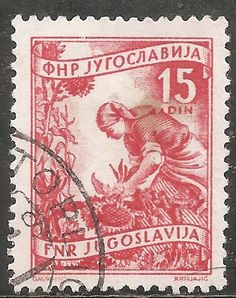
“My goodness, they almost look like dancers, don’t they? I wonder why we haven’t seen this anywhere else before now? It’s quite beautiful, isn’t it? Let’s see if I’ve got the light for a good picture. You two, stand over there.”
We had left Belgrade without regrets that morning and begun passing through towns and villages nestled among the steepening hills of eastern Serbia. These were the poorest places we’d seen and again, for me, it was a small foretaste of Africa as we passed old women trudging along the roadside, bent double under huge loads of firewood gathered from the surrounding woods. Precious few cars or trucks of any kind passed us on the narrow two-lane highway, the main thoroughfare in this part of the country. Little traffic and limited alternatives for entertainment on a summer evening probably helped explain this marvellous spectacle we were now admiring. Every citizen who could, it seemed, strolled up the broad sidewalk on one side of the town’s main square then crossed and back down the other side, endlessly, around and around, chatting, laughing, and admiring one another as they went. We joined in their promenade for a few laps while Corny tried to capture it on film.
“Thank you. Uh, Molim. No. Danke sehr… Sorry. Nem. Uh, hlava. Oh fuck it. Thank you. Very much. That was really beautiful”
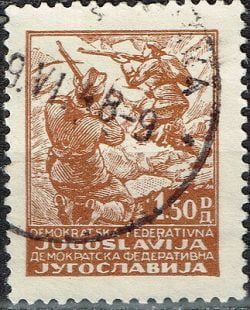
Whatever I was supposed to call the local language, I wasn’t making much progress in it, and German was a poor alternative here in the Serbian backwoods. Our diplomat back in Belgrade had said locals in some parts of rural Serbia still posted signs by the road that read “Germans enter at your own risk”. A tiny old man with white hair and moustache and bright blue eyes had walked up to my table as I sat alone in a dark café by the road. He stood there quite still, in a white shirt, black leather vest and polished shoes and began playing a hauntingly beautiful tune on his polished violin. His performance went on for maybe ten minutes; I was mesmerised and he looked like he was going to burst into tears much of the time. Did I remind him of someone he’d known? Someone he’d lost? He didn’t reply to my garbled thanks, just kept looking at me, intensely sad, then walked out without a word.
There was less slivovitz in the air now, replaced by music and perhaps a greater sense of history. Or was it tragedy? Are they the same? Corny had a similar experience to mine later that day, up in the hills nearby where a young man had played an exquisite flute solo for him then also just walked off in silence. The Iron Gates, the site of an ancient Roman fortress that guarded a narrows on the Danube, was not far down the road and much in our thoughts. We may have been thinking less about the historic romance of that place than about the steep little pass over the Carpathians we’d need to cross in order to reach the Iron Gates. It was our last real hill between there and the Black Sea and about the only place where Corny would really need the new gears I had put on his bike back in Vienna.
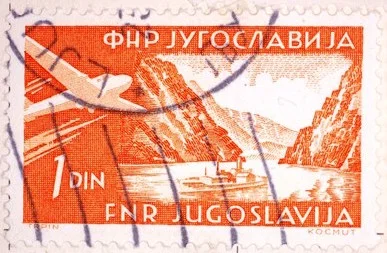
“Corny… Corny! Jesus. COOOR-NY!”
Patrick and I had been waiting for a while, expecting him to show up any minute, when he suddenly whizzed by without stopping, just barrelling on down the river, through town and out again. We had just conquered the little pass and were expecting to spend the night in this pretty little town tucked between the river and steep hills.
“I wonder if we should go after him?” Patrick suggested.
“Nah, he’ll figure it out. There’s really nothing between here and Turnu Severin. The border’ll be closed by now and it’s getting dark.”
I suspected Corny might have had a drop of slivovitz in his water bottle. But Patrick was right. The gathering darkness was a good reason to go after him and we soon did. When we finally caught up, Corny was suitably contrite but still jubilant about his victory over the pass.
“Sorry. I was just lost in my thoughts. It’s so beautiful here along the river. Didn’t see you there. Enjoying the ride. God that felt good coming back down! Howard I can’t thank you enough for this great new gear cluster.”
He had already thanked me more than enough; it was all right to hear it again though. Back in town we had a happy dinner with too much beer. We celebrated our victory over the Iron Gates pass and speculated about the final leg of our journey, set to start the next day.
Serbia wasn’t quite done with us though. Corny became violently ill not long after dinner. It didn’t last long and he felt better again by bedtime. Then Patrick was stricken and spent most of the night retching in the shared bathroom down the hall where the toilet was one of those ceramic plates with two treaded footholds that surround a redolent hole in the floor. I fear Patrick’s illness became a sort of perpetual motion machine wherein each visit to the primitive loo rendered him more nauseated than he’d been before he got there. He had bounced back by breakfast though and then it was my turn. I couldn’t disgorge anything but instead just lay moaning in the sun on a little wall like a dyspeptic lizard, beside the same restaurant that had poisoned us. It felt as though someone had stuffed me with rotten eggs and these now lurched back at me in vile tasting burps. When I could finally ride again, we barely had time to reach the bridge across the Danube before the border closed. From there it was just a few kilometres down river to the little Romanian city of Turnu Severin.
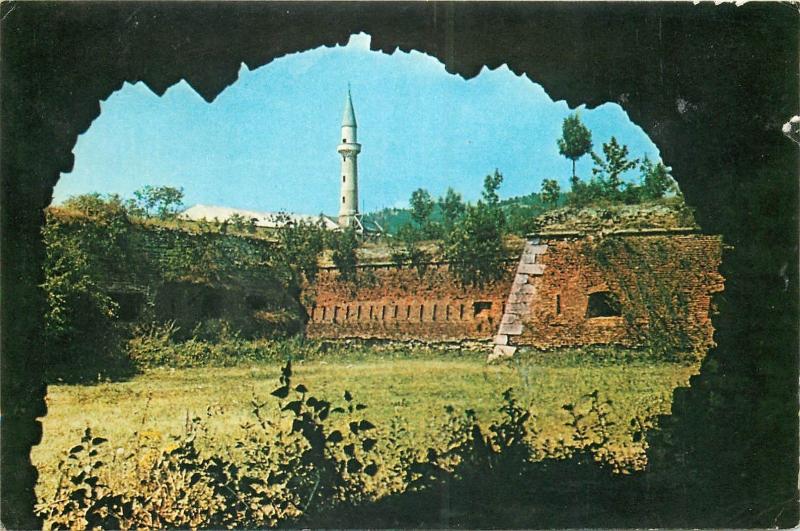
Roma and the End of the Road in Romania
“Oh no! You’re going to ride across Romania?” The receptionist back at the Hotel Slavija had looked horror stricken when we’d told him of our plans. “Well watch out for the gypsies! They will steal everything that’s not tied down.”
We received this sort of warning a few times Yugoslavia, so we knew there were Roma in Romania. But we’d been warned about so many ethnic groups by then that we didn’t take these gypsy stories at face value. Besides, things had already started to disappear in Belgrade.
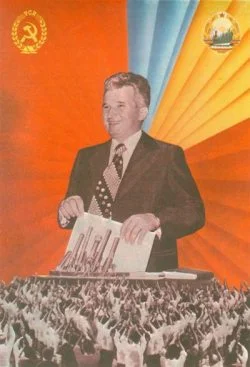
Like Marshal Tito, Romania’s President Nikolai Ceausescu was known in the west as a communist maverick, someone who’d managed to elude the strict control of Moscow, someone the West could do business with. Apart from this, we didn’t know much about Romania. It soon became clear that Ceausescu didn’t need the Soviets; he and his wife Elena were imposing their own kind of control. Except over the Roma, whom the first couple were said to be very fond of.
“Where’s my pump? It’s gone. Didn’t I have it yesterday?”
“Oh no. Mine’s gone too. And my spare tire. I know they were there last night.”
Emerging from our hotel on that first morning in Romania, Patrick and I discovered various things, previously attached to our bicycles, that now weren’t. Corny had been more cautious and taken everything off his bike the night before.
“Do you think it could be gypsies?”
We hadn’t really believed all that south Slav paranoia but we were not constrained by political correctness either. Everybody still called them gypsies. Up to that point we hadn’t seen anyone who looked like a gypsy though I wasn’t sure what one might look like. We soon forgot about it, resolved to be more careful and headed east into the broad flat plains of Wallachia.
“Hey Patrick. I can’t believe it! I wondered if it was all right to just stop here for a bit. I mean, you know, there was nobody around, eh? So I just had a little nap here. Then I wake up, and my sunglasses are gone. I can’t fucking believe this. Is this gypsies? Or is this country just full of thieves?”
Patrick had rolled in not long after I woke up, dazed, on an ancient wooden bench beside a well. I’d drifted off there, beside the road where a buzzing field of ripening corn offered shade from the afternoon heat. I’d wondered for a moment about my sunglasses, sitting in my outstretched hand. But the idea that someone might come by as I slept and take them out of my hand was just too silly. Now that appeared to be exactly what had happened. We knew what gypsies looked like now, we’d passed many on the road, and they were easy to blame.
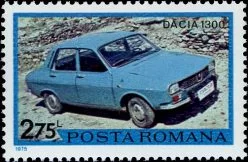
Romania’s highways were the emptiest we’d seen. The national car, the Dacia, was a locally built Renault that didn’t get into the countryside much and there weren’t many trucks. There were many gypsy caravans travelling the highways though, some alone and some in groups. The men wore black fedoras and the women headscarves; apart from a cursory wave of the hand sometimes, they pretty much ignored us as we rode by. It was easier to speak with many people here because so many Romanians spoke French. The gypsies though, something like ten percent of the country’s population, or two million people, appeared to move through a parallel universe and they didn’t speak French. Ethnic Romanians worked in government jobs, in offices or state-run factories in little industrial cities or on gargantuan collective farms. Gypsies meanwhile, wandered the country free, in covered wagons drawn by donkeys.
“Qu’est-ce qui se passe? Que voulez-vous? Je ne comprends pas.” I lied shamelessly.
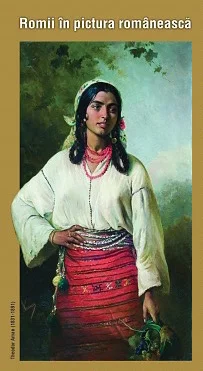
A few hours after someone stole my sunglasses, this fine-looking young woman with wild eyes was beckoning me to stop beside a bridge where she’d just run out of the woods with an infant in the crook of her arm. In a bright red headscarf and flowery dress, shining black hair and eyes, she looked very much like one might expect a gypsy to look. Her free hand pantomimed with much vigour as she pointed in desperation at the baby, at her own mouth, then at the kid’s mouth. Next, she brandished a hand in my face, showing off a collection of gold rings before pointing to my pocket then casting another pitiful look.
“Sorry but I don’t understand what you want” I repeated, though of course I did know what she was getting at.
And I was pretty sure she didn’t speak French. So my obtuse reply would be as unintelligible to her as her eloquent plea for child support was clear to me. But I just wasn’t in the mood to contribute to gypsy welfare so soon after my egregious losses. Nor was I in the market for a gold ring. And even I wasn’t stupid enough idiot to pull out my wallet in the middle of nowhere. Who knew how many of her friends were waiting in the woods below?
“It was the damnedest thing today. I was invited into a wedding. Just off the road. Gypsies. They invited me to join a feast in their camp. The music was superb, fiddles and guitars, tambourines. They danced up a storm and I did too” Corny went on, happy to remember the party. “We were having great fun until I found one of the young women with her hand in my back pocket, trying to fish out my wallet. It wasn’t so gay after that. Too bad. I probably could have got lots more good pictures.”
Corny’s misadventure had come the day after mine. We grew more cautious but the gypsy caravans also thinned out as we headed east. A day later I stopped to have a closer look at what I thought was a lively restaurant. But it was another wedding celebration, this one in an agricultural commune and the guests insisted I join them.
“But I don’t know how to dance.”
“Don’t worry, just watch and you’ll learn how it’s done.”
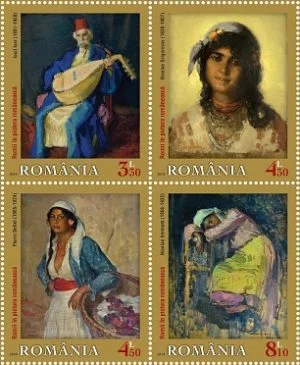
So many of these Romanians who weren’t gypsies spoke almost perfect French. Now this one, a slender and smiling dark-haired woman in a shapeless white smock, was staring into my eyes. Ten years older than me maybe. Her whole body had begun to undulate as her arms turned to liquid. Her neck and shoulders rotated at impossible angles, in all directions. Could the whole of her upper half of her body be double-jointed?
“Dance with her!” they roared.
“I could never do that,” I whimpered, and everyone roared their agreement.
“What do you think of this then? Isn’t our Romanian cognac the greatest?”
The plum brandy was flowing freely in a musty little store room where I’d been invited in to imbibe with the boys. I managed a few swigs, working hard to avoid gagging. On an empty stomach it made my head spin. Then Corny and Patrick rode up and they too were invited to the feast. Later we joined in simpler dances with the whole joyous wedding party, before slipping off to ride into the grimy little industrial city of Pitesti.
“Want to come out and see Chairman Ceau with me? He’s the biggest show in town again tonight.”
We were fascinated, perhaps the only people in town who still were, by the newsreels projected onto the walls of buildings after dark. These kept the locals abreast of important events, mostly the comings and goings of Nikolai and Helena Ceausescu.
“No, I think I’ll just stay in the hotel tonight” said Patrick.
So I set off alone on foot into a delightful warm summer evening. Out in the street I was soon befriended by a dishevelled young man about my age.
“Good evening. You’re foreigner, right?”
“Yeah, Canadian. We’re going down the river on bicycle.”
It was an odd statement considering how far we’d strayed from the Danube in recent days. The great river defined Romania’s border with Bulgaria to the south but we were now heading across the middle of Romania, much further north and wouldn’t see the Danube again until the other side of Bucharest. Such geographic details didn’t interest my new friend. He was keen to know how I found his country and what I thought of the Ceausescu newsreels. Tonight, Nikolai and Helena were opening a new petrochemical plant and visiting an art gallery.
“These are ridiculous. They embarrass us.” He frowned theatrically. “Do you want to sleep with me?” He asked this without missing a beat, feeling some urgency I suppose. And here I’d thought he was keen to talk politics.
“Uhh. No thanks. It’s very kind of you to offer but I’m not interested.”
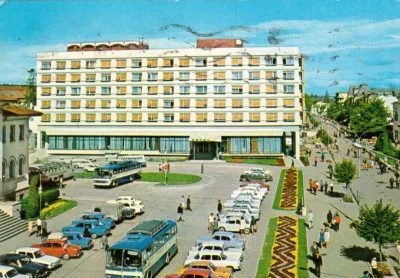
The look he gave me then was hard to interpret. Disappointed? Hurt? Pissed off? In any case, we didn’t have much to talk about after that and I wandered back to find Patrick and Corny in the hotel bar. Corny soon headed for bed and we began to talk with others.
“Hey you good looking boys, what brings you to Romania?” Brilliant red lipstick, bountiful white cleavage and short skirts, these two women didn’t look like they’d hitched in from a collective farm. They giggled as they talked, mostly eying me; now that Corny was gone I probably looked like the one who might have a bit of money. Or maybe there was something about Romanians? Could it be my gaunt sunburnt body? Was all this cycling making me sexier? Or were these people looking to compromise me, seduce me and make me a spy for Romania? I’d have been open to negotiate with the taller one but they moved off quickly, as soon as we declined to go out dancing with them.

*
“God. Look at this. We could be in Paris!” I marvelled as we strolled through central Bucharest a couple of days later. Corny must have known of this marvellous neighbourhood before we got there but he’d saved the discovery for us. Bucharest was far bigger, wealthier and more worldly than Romania’s other cities, and it was the only place in the country with an Arc de Triomphe and a Champs Elysées.
We settled into an ornate but rundown old hotel in the middle of town, a relic from the 19th century with poorly lit interiors, big rooms with high ceilings finished in dark hardwoods, frayed curtains and sparse, worn out furniture. Waiters were legion in the busy hotel restaurant downstairs but they made the servers of Paris look like saints as they competed to see who could go the longest without actually serving someone. We had to plead, often and obsequious, to get any service at all. Sometimes they obliged and sometimes they didn’t. When they didn’t, they continued chatting amongst themselves instead, ignoring their hapless, hungry customers. They’d still get their lousy salaries whether we got served or not and no one expected tips. Later I heard the Soviet explanation: “They pretend to pay us, and we pretend to work.”
*
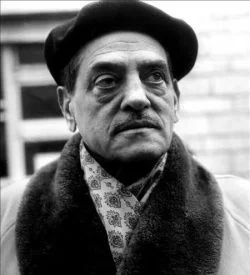
“I think Buñuel was interesting, yes, but I’m not sure if he was correct in his interpretation of dialectical materialism and the implacable contradiction between bourgeois nationalism and proletarian internationalism. Even after the victory of Franco’s reactionary forces I don’t think Buñuel ever fully understood the inevitable effects of capitalist imperialism on the global proletariat. His own bourgeois origins prevented him from seeing this.”
“I’m not sure about that either, Anton. But I know I’ll never forget that scene in Un Chien Andalou. You know, where they slice open that guy’s eyeball with a razor.”
“It was a woman actually” he corrected me politely.
“The chien andalou was a woman?”
“No, no, no. The person whose eyeball got sliced open was a woman. That film was nothing really, just a vestige from Buñuel’s pre-revolutionary youth.”
“I dunno, I think surrealism was pretty revolutionary at the time.”
I’d met Anton, a film student, on my second day in the capital. Skinny, short and good looking, with dark hair, he chain-smoked throughout the hours we walked and talked about film and Romania and the world. He denounced my French for having too much English influence.
I knew some of the work Anton talked about – directors like Buñuel, Truffaut, Bergman, Fellini, Fritz Lang, John Huston. I was amazed Ceausescu’s government allowed someone like Anton access to all these greats works from the decadent west. But mostly I was confounded by Anton’s Marxist jargon. Even after my studies at bolshie Simon Fraser University, I had only the vaguest grasp of most of the terms he used and concepts he spoke of. Anton, in turn, was frustrated with my shallow bourgeois world view and amateur knowledge of film. Yet his world view, to the extent I understood it, fascinated me and he may have found the same of me.
Anton was from Ploesti — the oily centre of Romania’s petrochemical industry – and happy to be out of it. I first wondered if he might be another gay come on, but Anton never propositioned me. Then I wondered if he might be a security agent, curious to know more about this trio of scruffy Canadians cycling the backroads of Romania. But we corresponded for years after I returned to Canada. We lost touch eventually and I’ve often wondered how he fared after the sudden execution of the Ceausescus in 1989, and all that followed. I hope he’s been involved in the amazing renaissance of Romanian film.
“You guys go on ahead. I got a bit of a headache. I’ll catch up.”
“OK Howard. We’ll meet you in Tulcea. I don’t think it’s very big.”
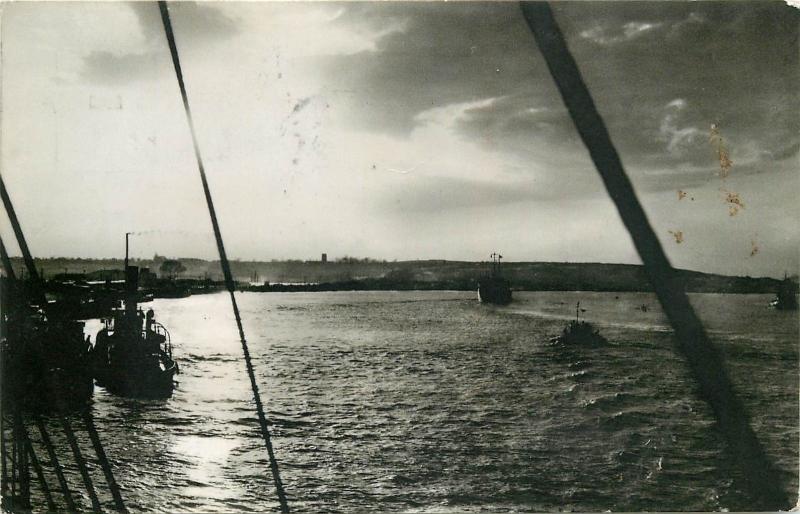
I did catch up, at the end of a day that had dragged on forever. Tulcea was literally the end of the road and very small indeed, just some low buildings amidst fields of watermelon. The country roads were flat and easy and a little boring; this was our final stretch before the mouth of the Danube. Venerable Romanian Orthodox churches in threadbare towns like Buzau and Braila had a distinctly oriental flavour now. But, like Joanie Mitchell’s friend Richard the last time she saw him, I’d begun fantasizing about the pain in my head.
The morning we left Bucharest I’d fallen asleep propped up against the wall of my room, standing on my head. These morning headstands had seemed a brilliant innovation at first, an enlightened yogic response to my chronic impatience with the Burke’s slow morning starts. Now, a couple of days later, I suspected my extra long headstand back in the capital might be behind this ferocious headache that wouldn’t go away.
“I’m sorry. I dunno what’s wrong. It just hurts every time I stand up.”
Corny guessed this was an understatement. Starting off from our dark room in a tiny white cottage to find breakfast, I’d fainted the moment I stood up, as an intense flash of pain ripped through my head.
I was asleep again then awake when someone spoke very slow, correct French and insisted I must go with them to a hospital outside town. The ambulance was an ancient ramshackle panel truck with a couple of primitive wood and canvas stretchers. Each bump in the road jabbed like a needle into my brain. They unloaded me at a place that looked like a dusty field hospital in Dr. Zhivago. Busy nurses in white head scarves bustled in and out of whitewashed buildings around an earthen courtyard. Broken bodies, some swaddled in bandages, some on crutches and some just generally decaying, were out taking the sun among the chickens in the yard. How had it come to this?
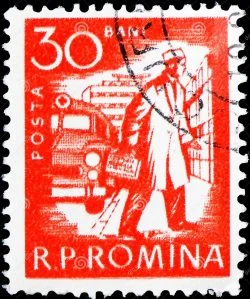
The translator recounted my symptoms to an unsmiling, harried looking woman who asked a few questions and quickly diagnosed my problem. She didn’t share her assessment with me though and suddenly a burly nurse, who didn’t look anything like a young Julie Christie, came at me wielding the longest needle I’d ever seen. She loosened my belt, flipped me onto my belly like a sack of potatoes and pulled down my trousers. Even before her fearsome silver spear had completed its journey into my gristly buttocks, it didn’t matter anymore. There was still pain in my head somewhere but it didn’t worry me like it had a moment ago. The morphine had come between me and my pain, leaving me happy to observe it from somewhere else. No wonder people suffering great pain of one kind or another get attached to this thing. Apart from that — from what I could make out — they prescribed antibiotics, B vitamins, and sleep.
And sleep I did, for a whole day, maybe two. I was still in bed when Corny and Patrick returned from their boat trip, out through the lush river delta to a beach on the Black Sea. But I never made it past Tulcea and before long we were headed west again, on a train.
*
“Come on. This isn’t fair and you know it. You really expect us to pay more for the bloody bikes than for our seats? We didn’t pay a thing for them between Tulcea and here!”
Anxious to get back to Switzerland, we were stuck in Bucharest where my impassioned pleas for justice fell on deaf ears. It had been easy to get our bikes this far; we’d just showed up at a little station and threw them on the train. Corny may have slipped the conductor a few Lei. Now we needed to get ourselves and our bikes back into Yugoslavia and it was my job to organise it; one of those few occasions when I’d earn my keep. It took hours but Romania’s tedious officialdom was a breeze compared with the next ones, in Belgrade.
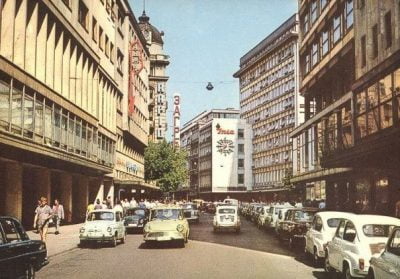
“You wouldn’t believe it. A whole day going round and round between offices in that goddamn customs building.”
I needed them to know what I’d been through to get us on our last leg back to Zurich. Corny gazed at me indulgently. Patrick was just bored silly.
“I mean, I saw some of those guys, like two or three times. Maybe more. Most of the time, I’d be stuck outside somebody’s office, waiting to get in to see ‘em. Because they were the person I’d been sent to by the last guy. No idea why. Then, you know, we’d get to talking a bit in bad German, bad English. Sometimes we understood each other, I think, and sometimes, for sure we didn’t. But everyone just kept sending me on again, to some other place in the building. Sometimes they’d take the piece of paper I’d brought in, the thing the last guy’d given me. There was always some kind of form that I had to fill in. Then they’d put a stamp on it and give it back to me. Or sometimes they’d just keep it, take my piece of paper and give me another one, a new form that I had to fill out again. Sometimes these papers were big huge things that I had to fold up. They’d make a big deal out of showing me how to fold it properly. Other times they’d be just little slips. Couple of times they just looked at the paper I’d brought in from the last guy, and didn’t stamp it or anything, just sent me on to the next person. It went on like that, around and around and around, for hours. Then, all of a sudden, it was done. I have no idea what happened. But they took our bikes.”
Corny still looked suitably sympathetic and impressed by my tale of hardship. In retrospect its obvious that a few Deutschmarks or US dollars to the right person would have solved the problem, ended my gauntlet of meaningless office visits in a moment. Instead, twenty years old and thick as a board, I wasted a long day before those underpaid and underworked servants of the Yugoslav state finally stopped trying to get blood from a dull-witted stone. But again, there would be a sting in the tail.
“Look Govard. Bicycles. Fency ones. Meybe your bicycles? Vat they are doink?”
A great many young and middle-aged Yugoslav men, and I, stood and sweated in a narrow corridor, jammed tight with barely room to breathe. I’d been talking with a smiley young Serb headed back to his factory job in Duesseldorf. Dragan and I competed with many others for a precious draft of cool air at the windows.
“No! Noooo! Stop! No! I can’t believe it! What are they doing? You there! Stop! Oh please don’t do that. What the fuck? Stop! Please!”
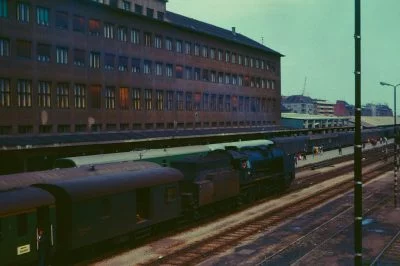
Corny and Patrick were in another car. Except for Dragan, no one nearby could figure out my problem. Nor did they care. I stood there helpless, pounding on the window. I’d obtained those elusive export permits and consigned our bikes as baggage. Our first stop out of Belgrade was Zagreb. And now, as the train stopped briefly and I wriggled uselessly inside that stifling sardine tin, railway men a short way down the platform offloaded our bikes onto a luggage trailer. My Peugeot was little more than scrap metal by then but Corny and Patrick’s bikes were worth a small fortune. I stewed about this the rest of the way to Zurich, searching without success for a way I might explain it to Corny. How could I, when I didn’t understand myself? Had I consigned our bikes to Zagreb by accident? Mixed one Zed place for another? Had they been stolen? It would be the second time I’d lost a bike in a train station that year. Most important of all, how was I ever going to get on my way again? How could I get out of Zurich without a bike? How could I ask Corny to pay back the few hundred Deutschmarks he’d borrowed, if I’d just lost their bikes worth far more?
Our bikes caught up with us in Zurich a couple of days later. In the meantime, my old friends at the Dolder Grand had misplaced my wedding clothes. I was once again consigned to gilded captivity until my bike arrived and could bid the Burkes a fond farewell. They set off for a family vineyard near Bordeaux while I headed for Alsace to ponder my future on the left bank of the Rhine.
The poor fit between me and the world of privilege had left me as raw as the young Werther. I toyed with going back to Petra in Donaueschingen but opted instead to go back to university. It would be twenty years before I worked in Europe again. By then, there was only one Germany, again, and every communist government in Central and Eastern Europe was gone. Gone even from out of the way Albania, my next European assignment.
*
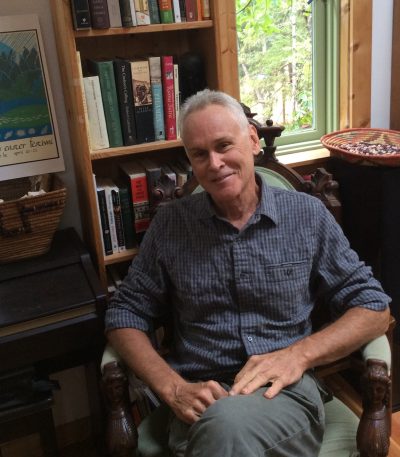
Howard Macdonald Stewart is author of Views of the Salish Sea: One Hundred and Fifty Years of Change around the Strait of Georgia (Harbour Publishing, 2017). An historical geographer and semi-retired international consultant whose work has taken him to more than seventy countries since the 1970s, Howard has reviewed books for The Ormsby Review and BC Studies. He has also written a popular Remembrance Day piece, “Why the Red Poppies Matter,” in The Ormsby Review no. 420, November 11, 2018. He is now writing an insider’s view of his four decades on the road, notionally titled Around the World on Someone Else’s Dime: Confessions of an International Worker. He has lived on Denman Island, off and on, for more than thirty years.
*
The Ormsby Review. More Books. More Reviews. More Often.
Publisher and Editor: Richard Mackie
The Ormsby Review is a journal service for in-depth coverage of B.C. books and authors. The Advisory Board consists of Jean Barman, Robin Fisher, Cole Harris, Wade Davis, Hugh Johnston, Patricia Roy, David Stouck, and Graeme Wynn. Scholarly Patron: SFU Graduate Liberal Studies. Honorary Patron: Yosef Wosk. Provincial Government Patron since September 2018: Creative BC
“Only connect.” – E.M. Forster
8 comments on “#21 Bumbling down the Danube”
Comments are closed.